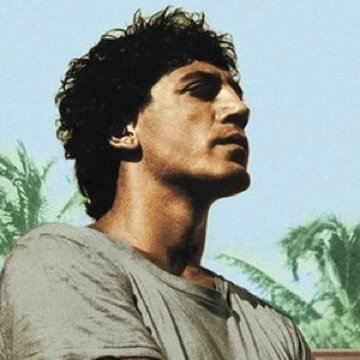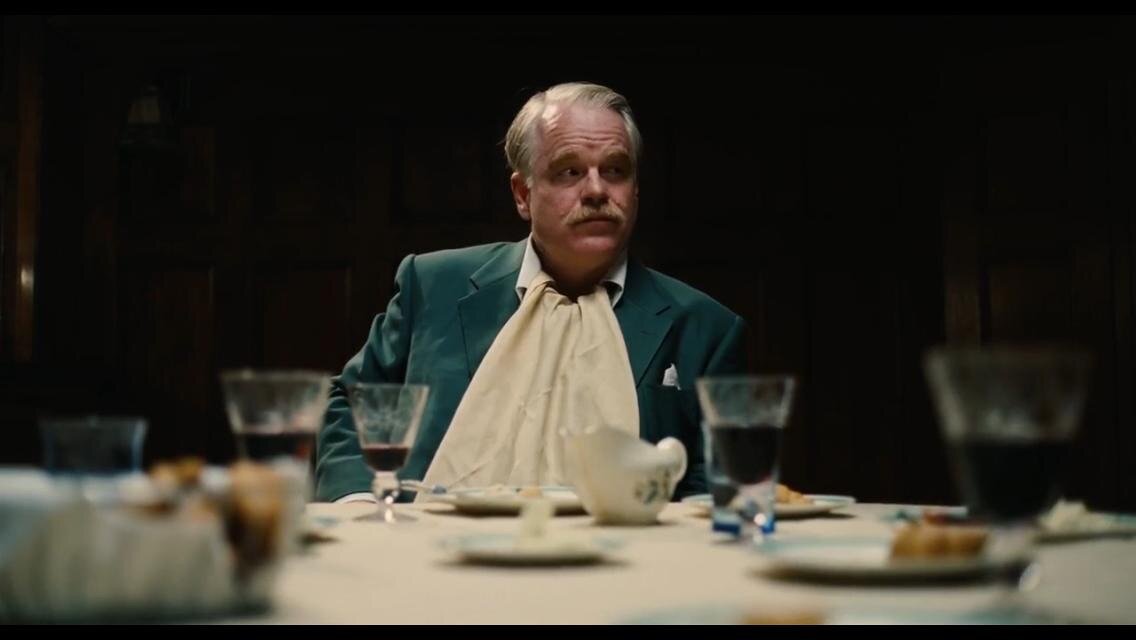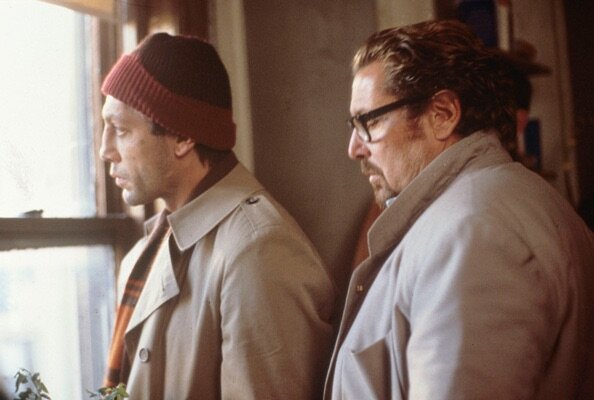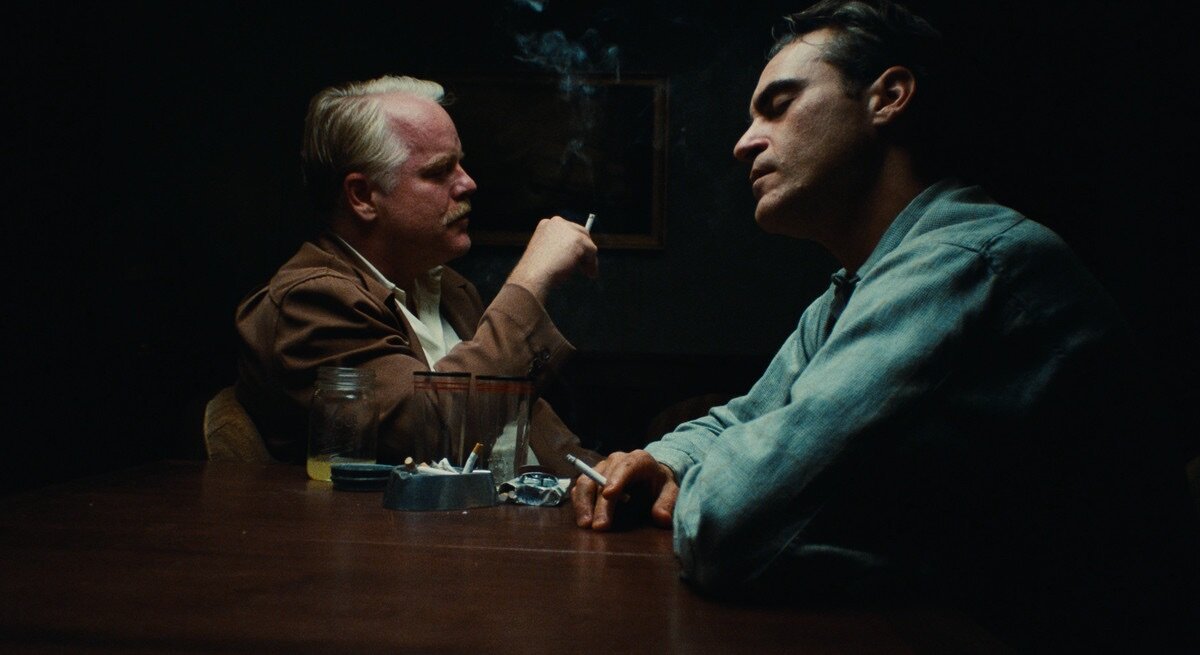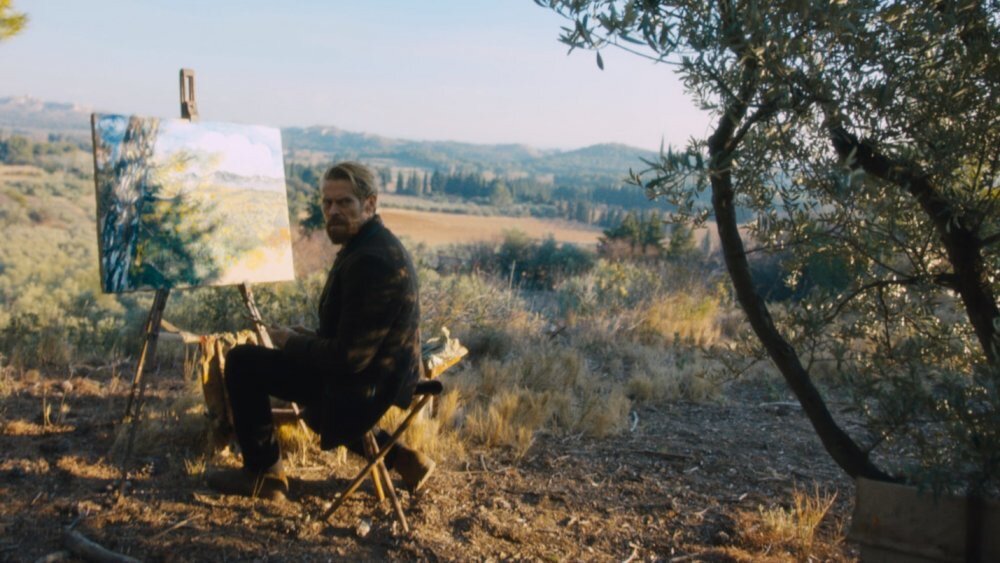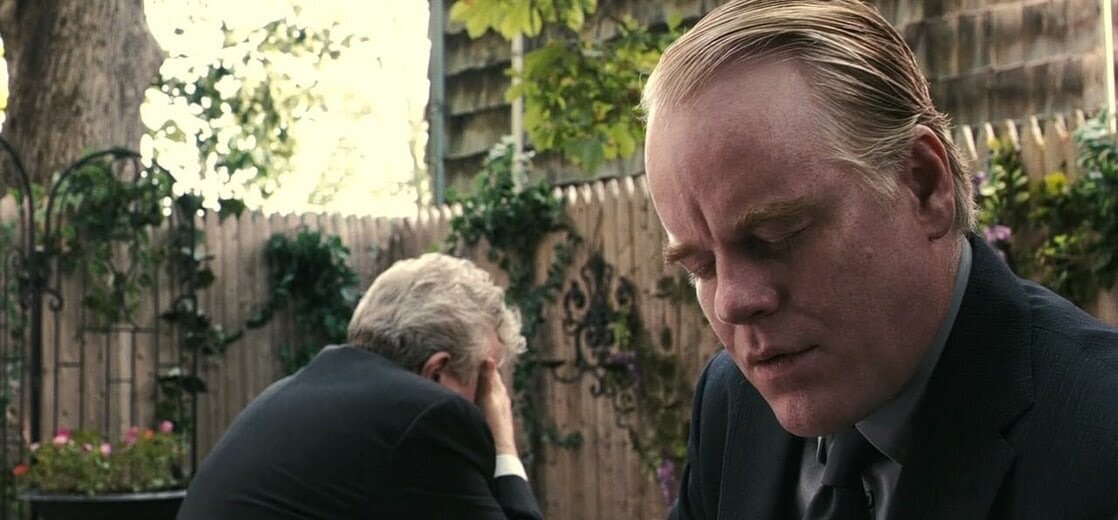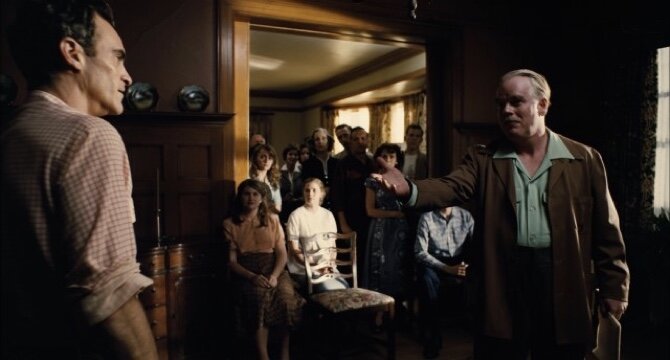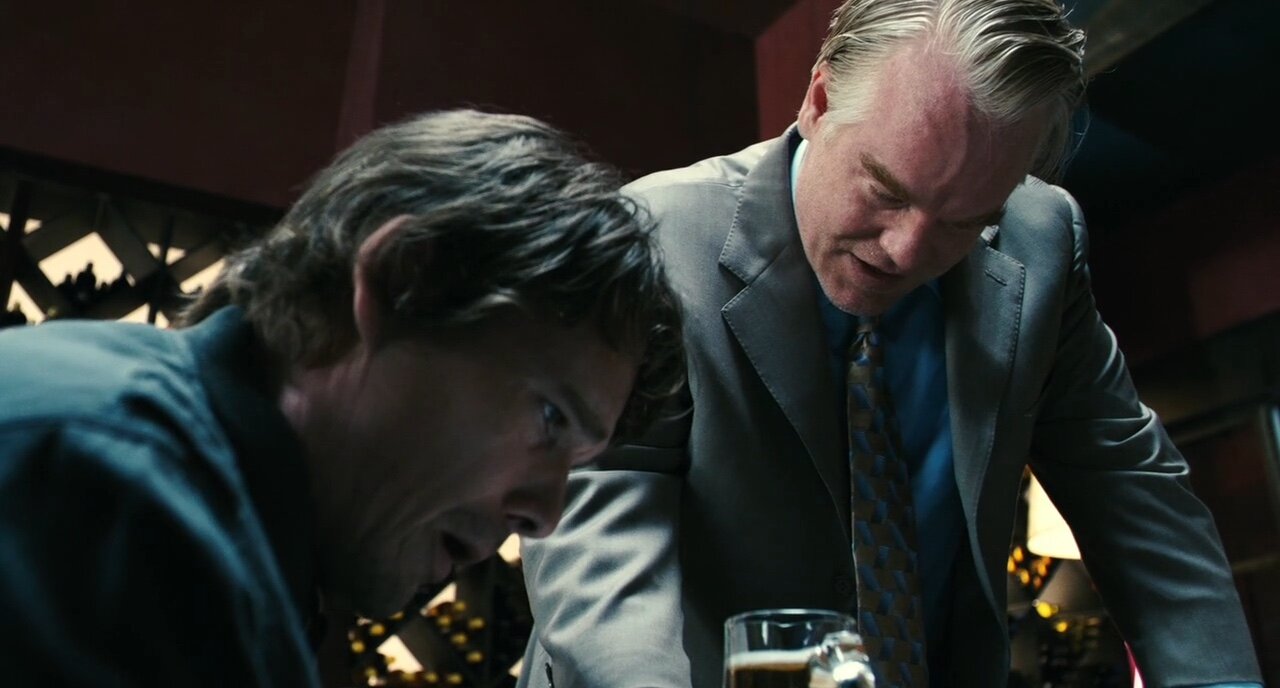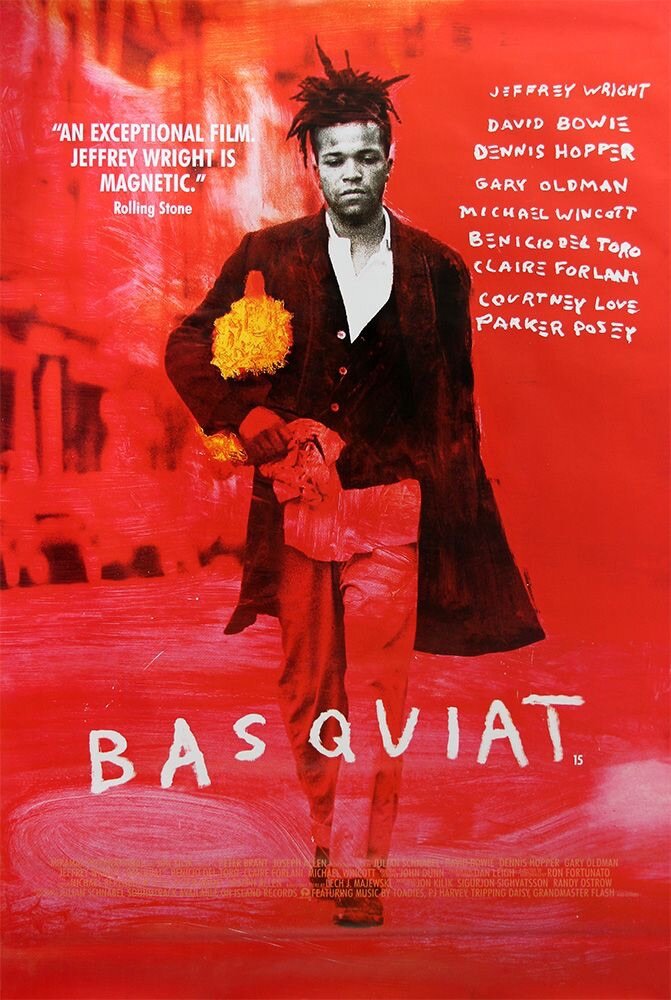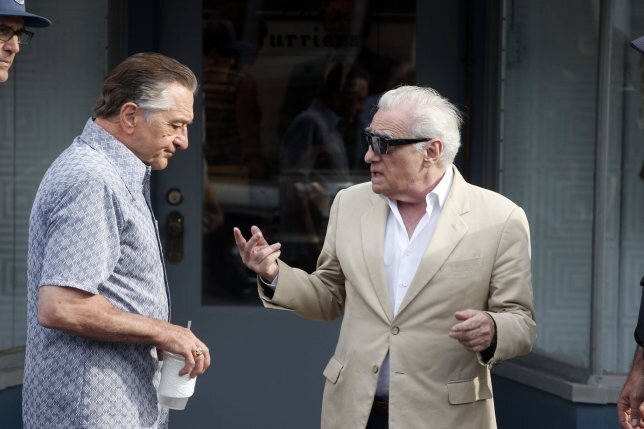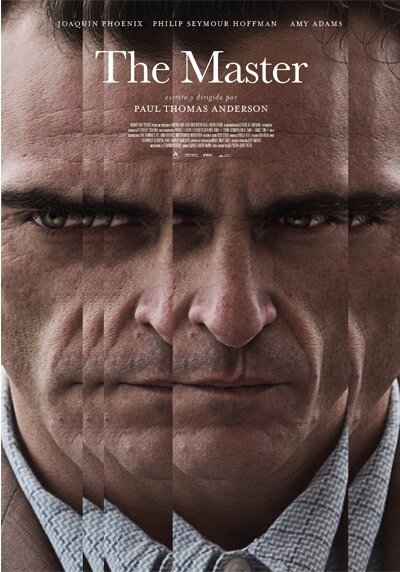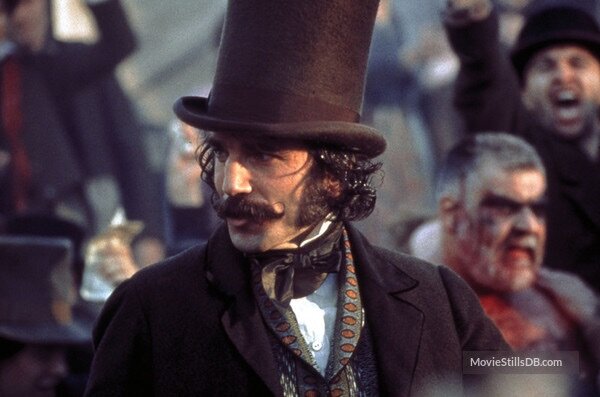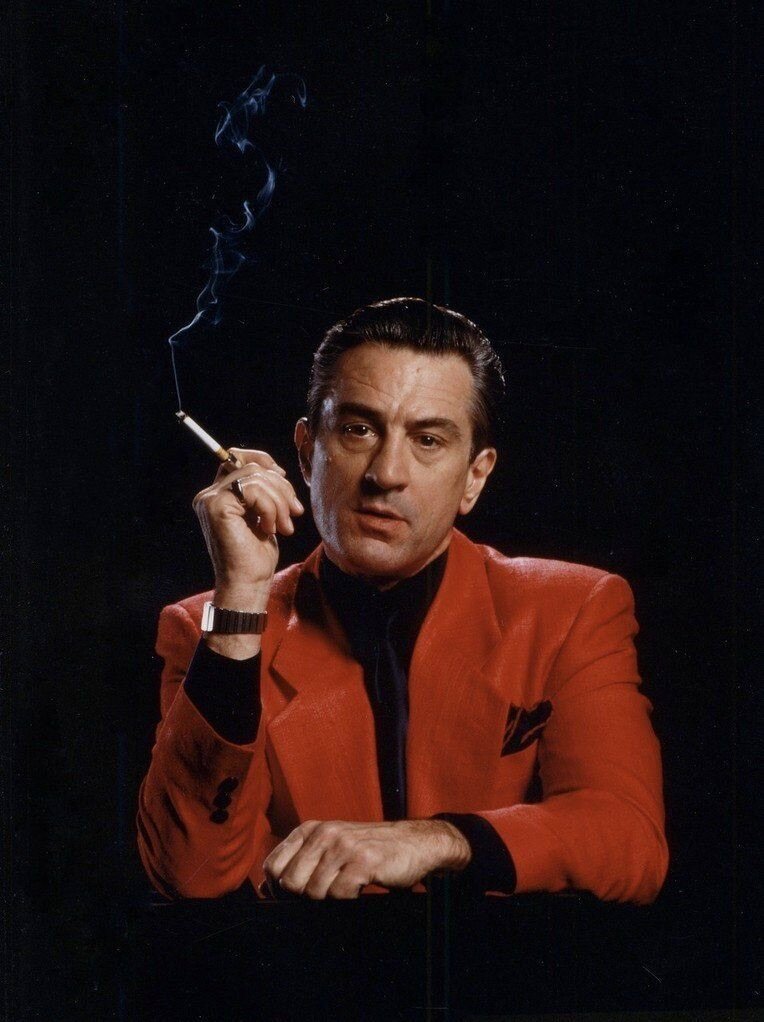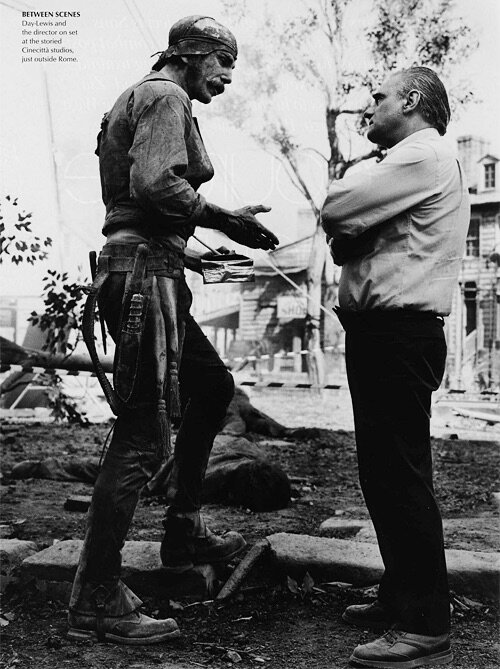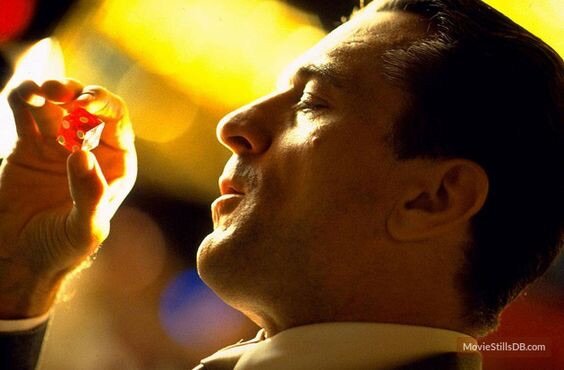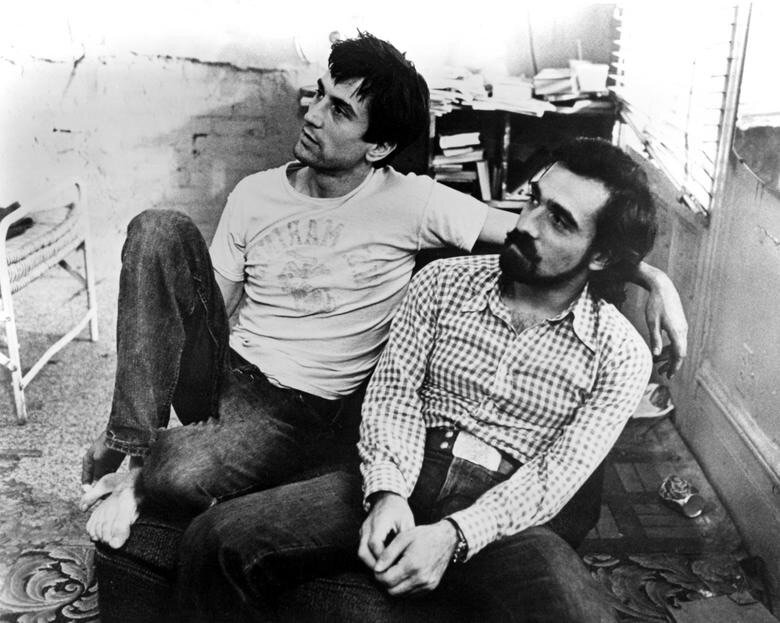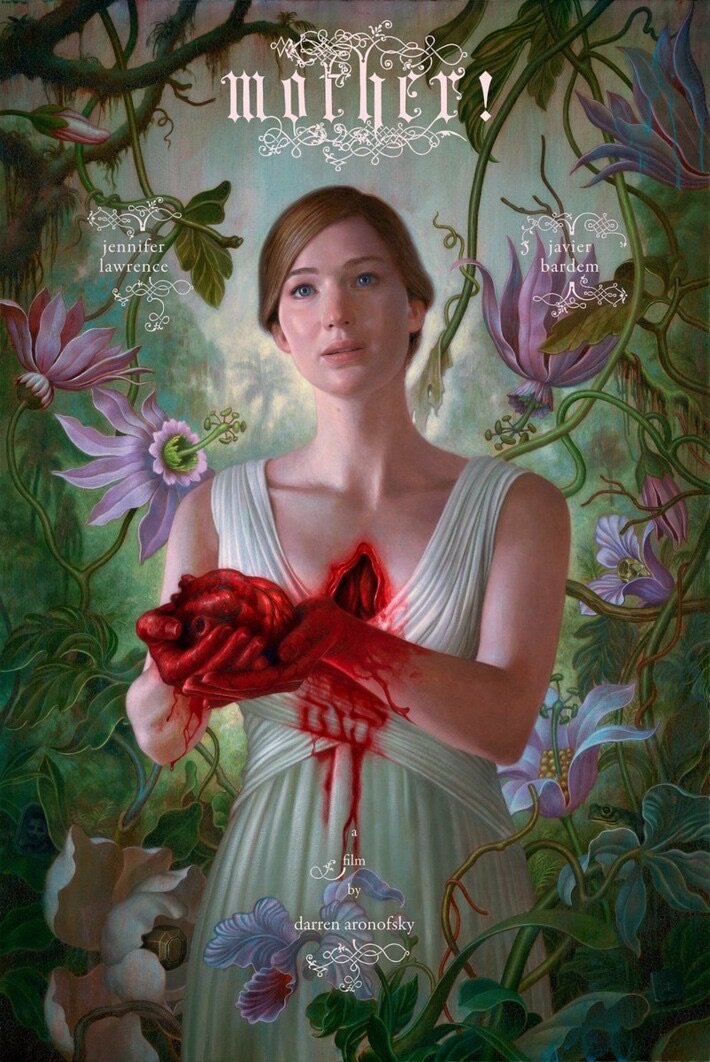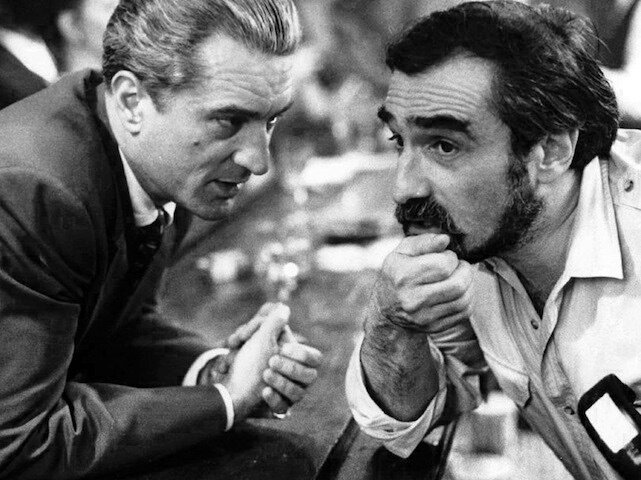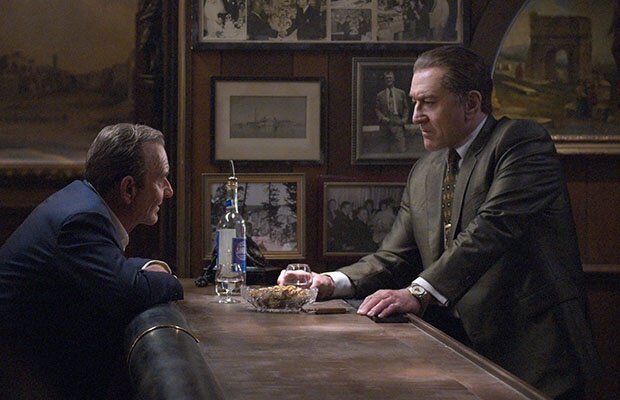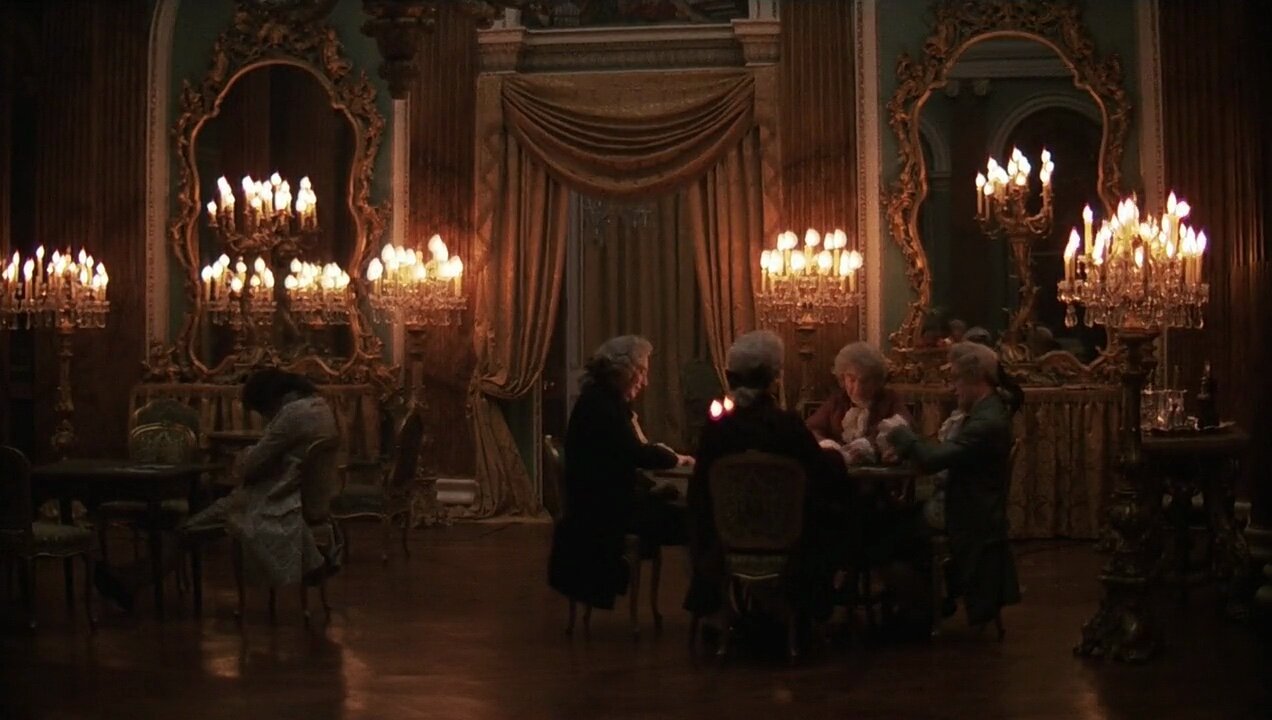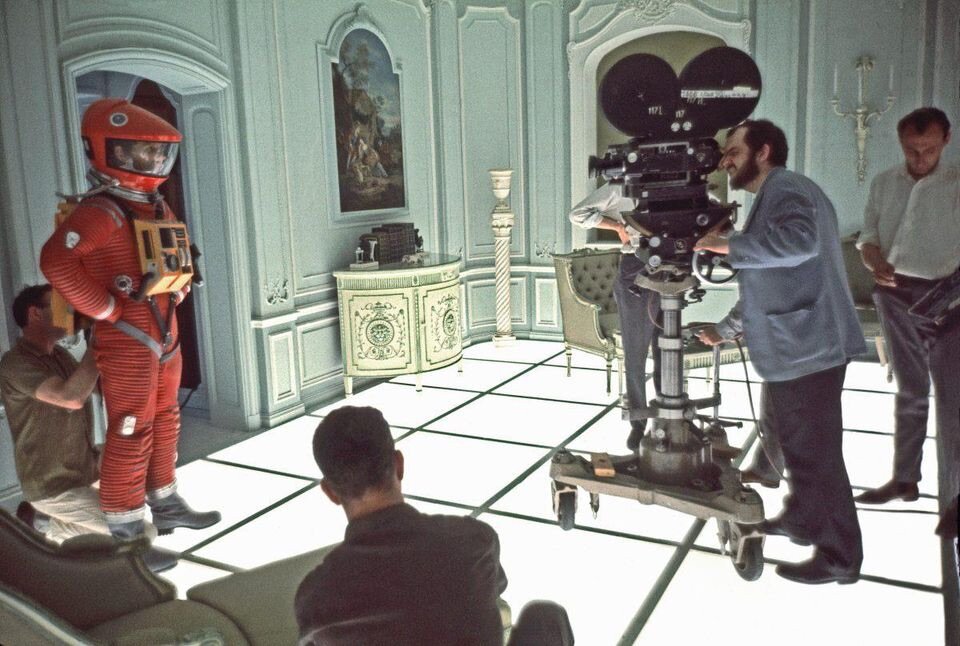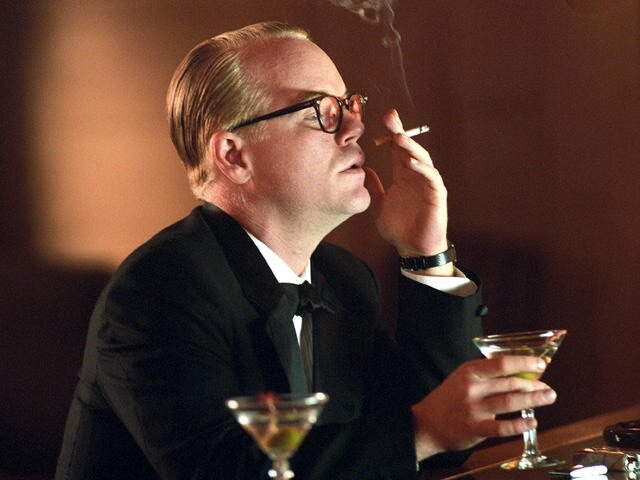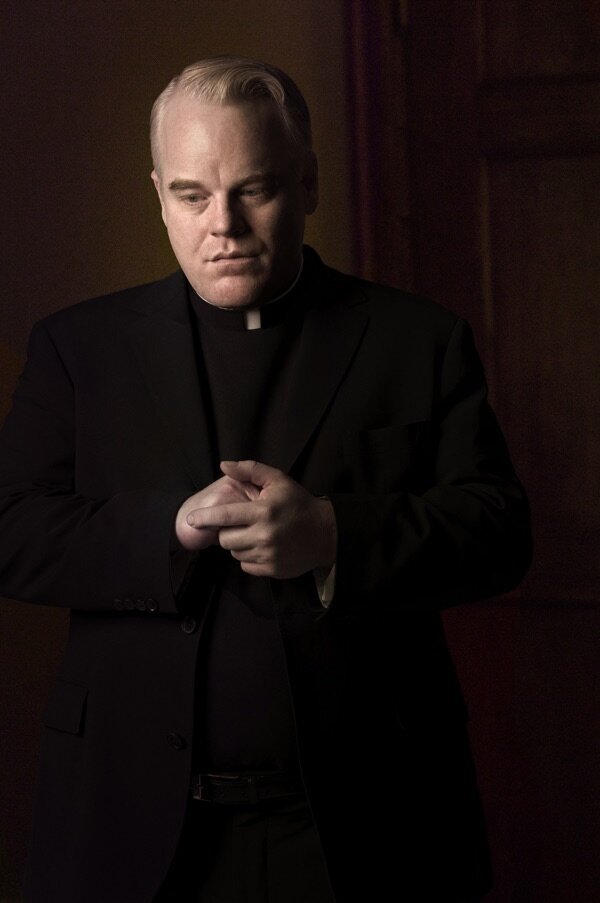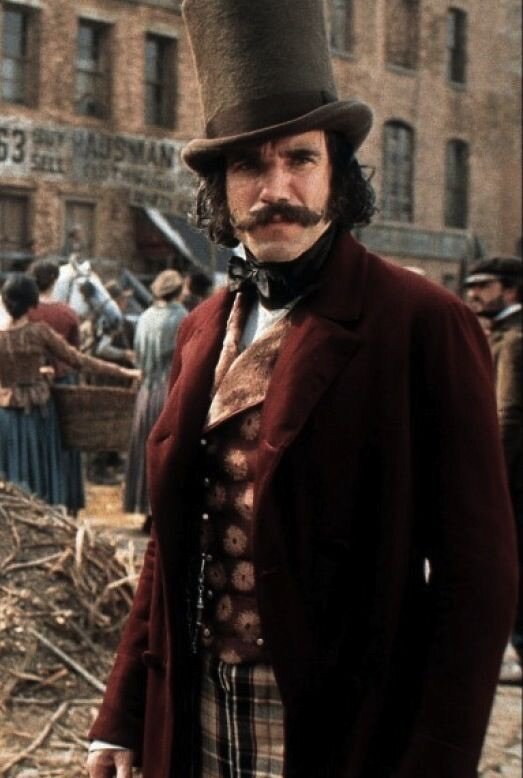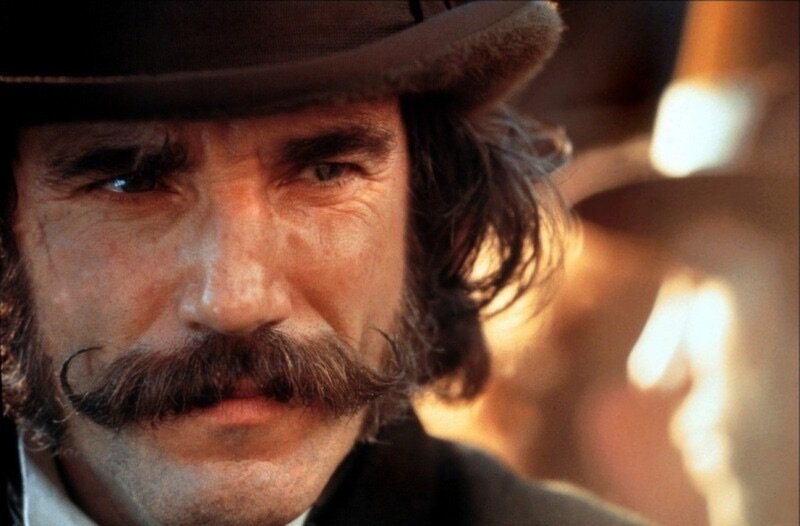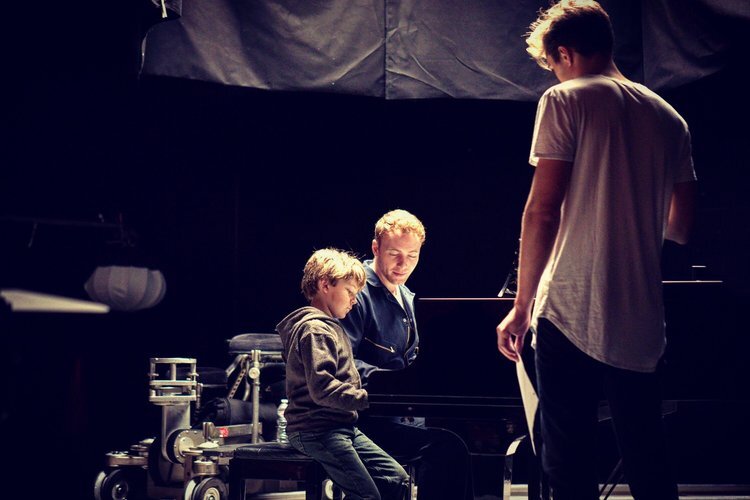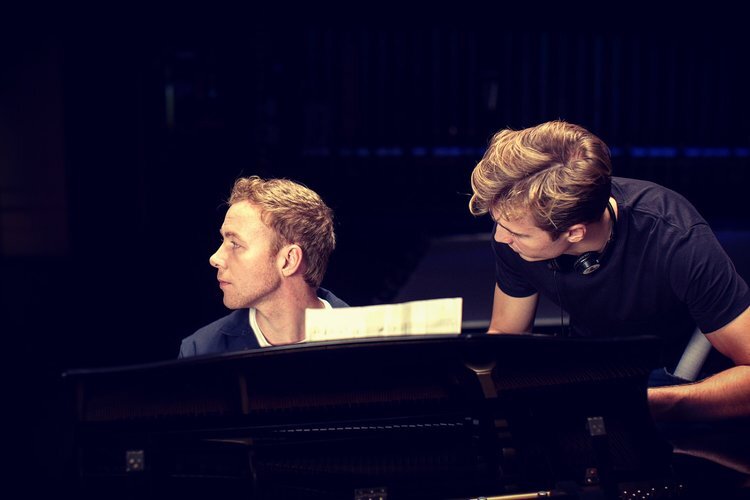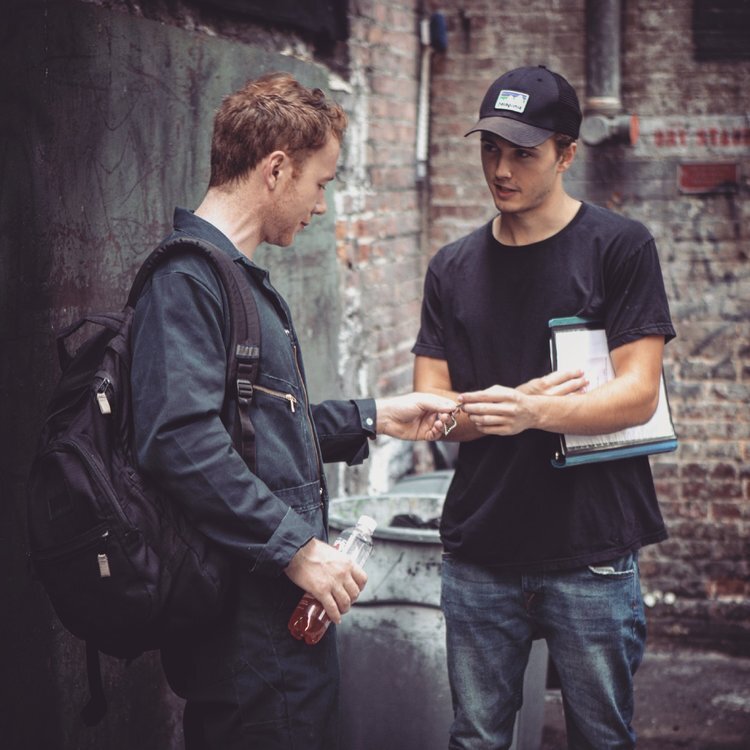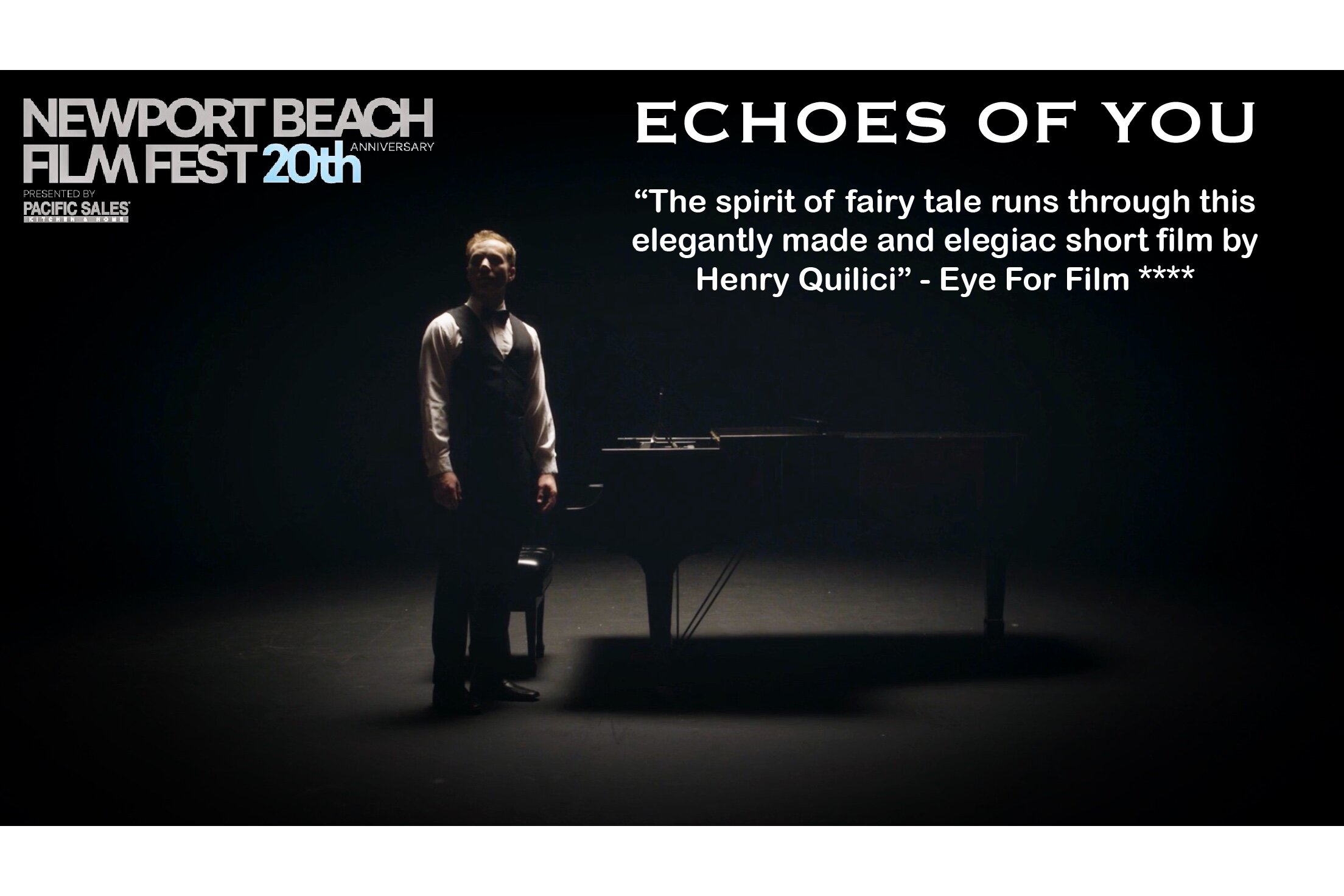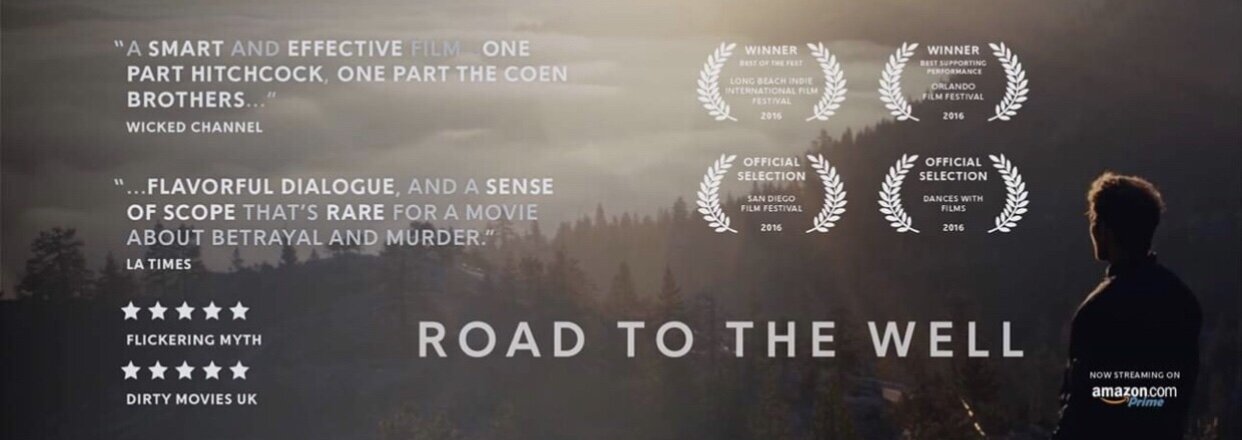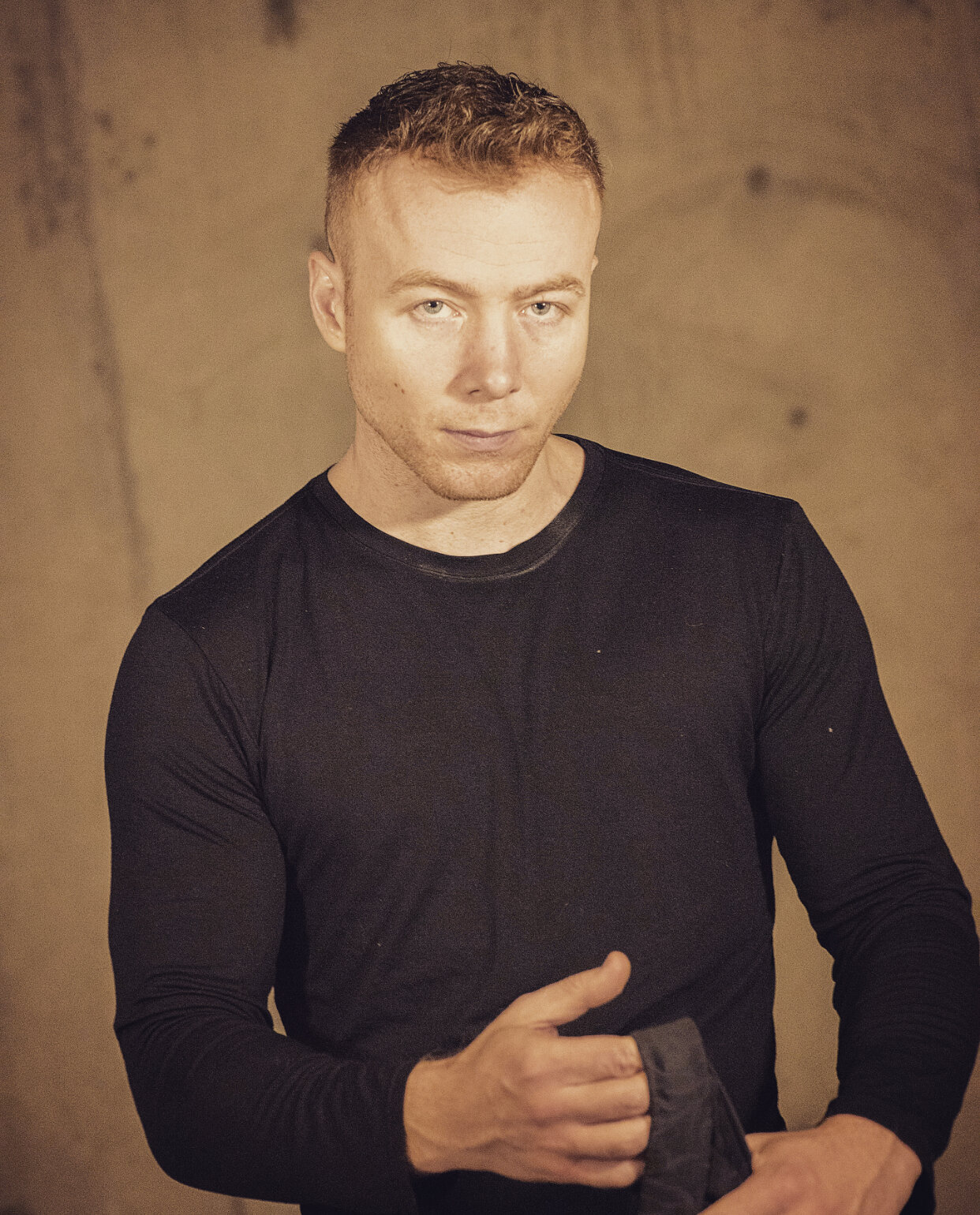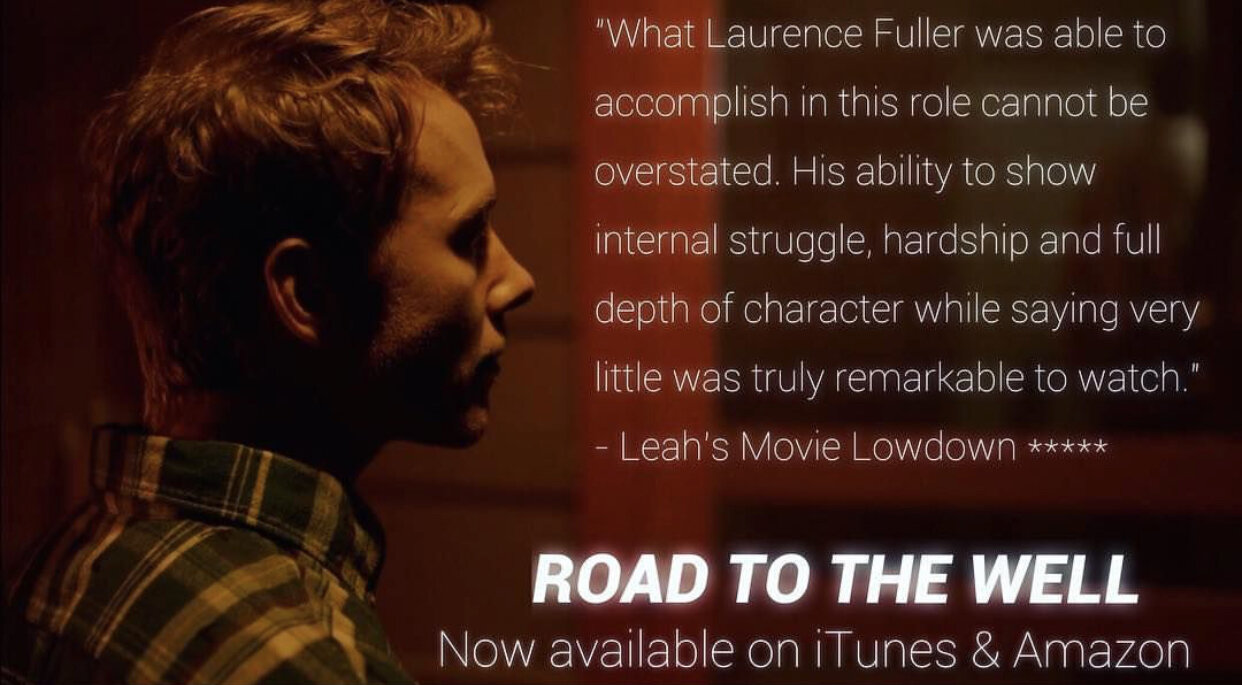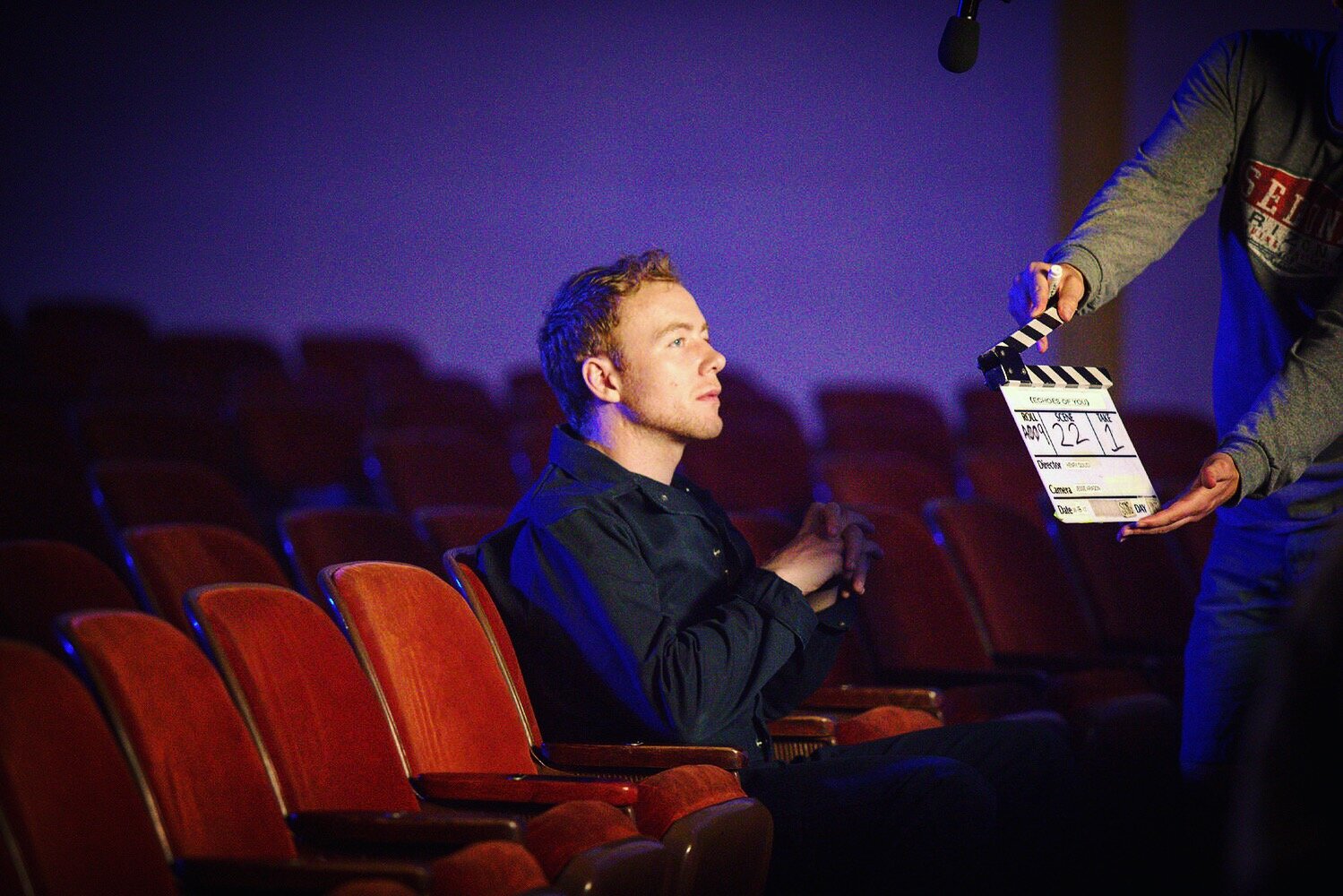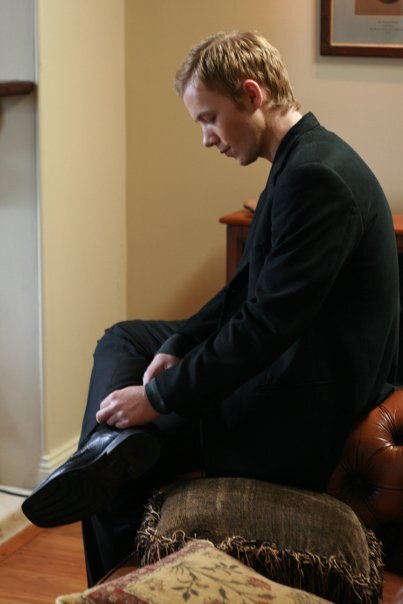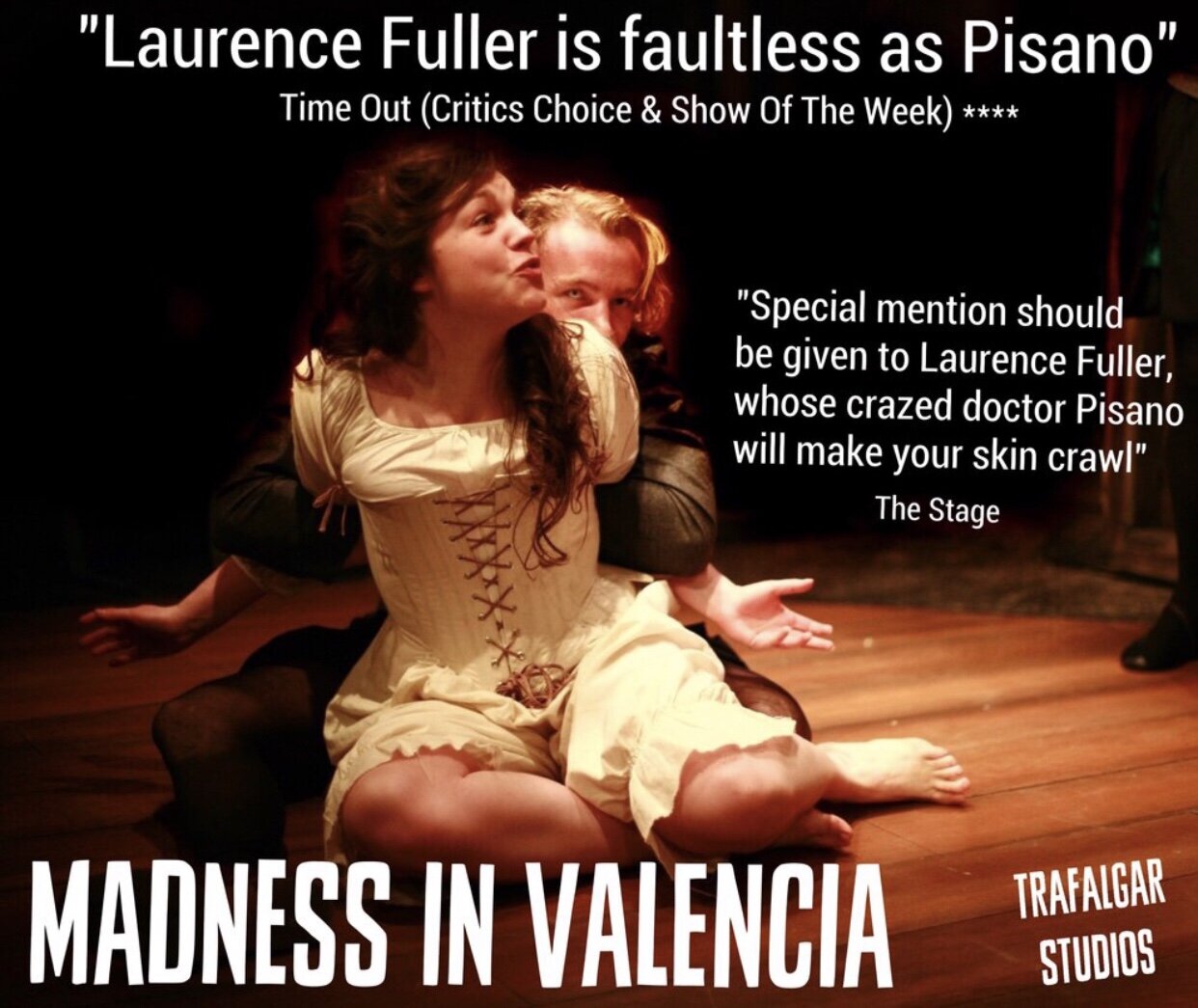Modern Art screenplay has just won 3rd Place at Hollywood Reel Film Festival: Screenplay Awards, participating February 2020 at LA Live.
Estante Cinema interview /
This interview was initially published in Estante Cinema Jan 2020
EC: Your acting is impressive when you need to be angry or upset. Is there a feeling that is challenge to an actor?
LF: That sort of explosive big energy may have come from working in theatre, the high stakes in Shakespeare’s narratives, or maybe that’s just me sometimes. I always resented the idea of projecting in theatre, forcing my voice and body beyond what it naturally wanted to express. Instead, I had some very good directors I was working with early on in Australia who encouraged me to use even stronger choices in my emotional character work to make the performance naturally bigger and more expressive, from an authentic place.
The most challenging emotional range that takes time to develop as a person not just a performer, is a sort of empathic listening which forms the baseline of any great performance. It’s about understanding other people and one’s self which is an ongoing conversation with the universe.
The real challenge comes in honing the complexities of a one’s feelings for the camera, to tell a subtle and effective story of a character, to “explode” when needed and then to keep it small and precise the next moment. It takes a lifetime to develop that craft and it never really comes to an end.
EC: Tell me how was to act in a biblic movie. Are you religious? If yes, you certainly hadn't difficult to develop your character. Is my thought correct or you see from another perspective?
LF: I saw Apostle Peter & The Last Supper as a modern adaptation of the sort of classical pieces I was doing in England not long before that. It was a period piece and people of that time were very informed by their religious outlook. The Romans had their Gods and Christianity was only a growing movement at the time. These were the circumstances of Martinian’s life that inform where he’s coming from at the start of the film, when we meet him as the powerful cocky Roman general. Then he gets taken on a journey as Apostle Peter played by Robert Loggia tells him about another way of life. For me it was an honor to be on set opposite an Oscar Nominated actor, so I sort of let myself get swept away with the wisdom of this great actor’s facility with storytelling, that was really the key to this piece for me.
Am I religious? I believe a secular religious experience that’s akin to love and a humanitarian caring of our world is possible in a sort of higher cultural learning and understanding. To learn from the best of cinema, the best of art and film, to discipline oneself to take only the things made with the highest level skill and emotional content.
This is why during the Renaissance the church and the Monarchies would employ the most talented artists to express these high emotions and reach the masses in a way that no one else was capable of doing.
My personal message is a humanitarian one more than anything else, to take care of our earth and it’s creatures. Creativity is at its most vibrant when coming from a place of spiritual connection with ourselves and our world.
EC: I'd like to praise the film photograph. I was thrilled in the moment I saw Andrew and the boy sitting by the piano, where the surrounding were dark and only you and the kid was visible. This take showed me a unique moment which mattered to both characters. How was your participation in this short, besides the acting?
LF: My only contribution to this film was the acting. Zachary Risinger is a very talented young man so it was easy working with him, he picked up so much intuitively from the energy around him and went along with it all.
Henry's brother Max Quilici wrote the main theme to Echoes. The piece was so minimally and yet effectively done, I felt there was no way I could do this part without learning at least some of the piano in order to play this song. With the couple weeks preparation, never having laid hands on a piano before, I managed to learn how to play the first half of the song.
I came across a documentary preparing for the role called Pianomania, about a piano tuner for some of the world's best pianists. He was someone whose love for the piano extends beyond the performance, becomes almost an intellectual pursuit, like preparing for a role that one never acts. The language that he began to use to describe moments within a sound were complex, abstract and beautiful. The joy and the passion for the music then became a dedication to the development of someone else’s craft.
That has always been something that’s interested me, how much should we use art of the same medium to influence our work. I feel that art should be the language to express the fullness of life. But the conflict then comes when confronted with another’s work that we stand in admiration, that admiration must then come from an ideal within us that we wish to reach. Then the choice becomes wether to run forward towards that same goal, almost like an Oedipus trying to surpass the father, or wether to stand back and remain in a place of fixed and constant admiration allowing it to either influence one’s work in another medium, or is it enough to touch a place within a performance, to shape the artists work by pushing a sound, an aesthetic a feeling further than they could have by themselves. The position of a conductor to a musician, a director to an actor, or a parent to a child, shaping the raw materials of a human being in a particular direction, for the purpose of benefiting humanity.
EC: Echoes Of You received a beautiful production. Would you like to see a feature filme of it, or you think there are some works which deserves to be untouchable?
LF: Both Henry and I respectively have a few film projects in development that I’m excited about.
Henry showed me a short documentary he made about discovering his grandfather through a box of letters and journals he found in the attic. We discussed how eerily similar the project which fills my days is, a film about my father, the late art critic Peter Fuller and going through his journals almost every day from the TATE archive. I’ve made my way through a huge chunk of his writings public and private, to piece together a singular man of principles in his writings. And now his echoes speak to me. Some things are so special they take more than just one lifetime to complete. That's really what this piece is about, the Greek philosopher Hippocrates said "Life is short, but art is long". The screenplay just won 3rd place in its first script competition; Hollywood Reel Independent Film Festival Screenplay Awards 2020, participating this February:
http://www.laurencefuller.art/peter-fuller-art-critic
"Art, I believe; help thou mine unbelief"
Peter Fuller, one of the most influential Modern Art critics of all time, is making a name for himself in the art world of the 70s and 80s, disrupting the establishment with his radical ideas and passionate debates. It’s not long before his demons catch up to him, as he undergoes psychoanalysis to prepare for fatherhood and escape the shadow of his own evangelical father. Peter confides in his childhood friend Michael, as they develop a friendship with the Revolutionary art critic John Berger, which changes the course of all their lives and sends ripples throughout the art world, which are still being felt today. Artistic betrayals lived out on a grand scale, art deals in the many millions, new movements in art court an impassioned public. One of the last true Modern Art critics, Peter Fuller’s life was tragically cut short by a car crash in 1990, but his spirit lives on and his son survived the crash to tell this story.
EC: Tell me how come is to work with Quilici and what are his qualities (as a director; as a person)?
LF: I found Henry to be incredibly clear about what he wanted, everything very specific in emotional terms, he spoke very subjectively and compassionately, not the sort of move your head a little to the left which can leave actors feeling like meat puppets and end up with mechanical performances. He worked as many of the best directors do, from the inside out.
The first meeting with Henry Quilici happened at the end of last year shooting his USC short "Tweaker Speak” about a meth addict dealing with the demons of addiction as he tried to get his daughter back. A very different piece. I noticed the things Henry would say were very to the point, very clear, uncluttered by doubts or abstract theory, his notes always referred back to the story or to human experience.
A couple months later I was contacted by Henry and his producer Cam Burnett (a young filmmaker with similar sensibilities). When I first read the script and came to the end, I burst into tears, it had come to me soon after I had finished reading a passage by John Berger in his book “A Painter Of Our Time” which detailed the life of an artist, most often one of constant sacrifice for their work. Henry had captured that plight so beautifully with this story, I had to do it.
EC: A personal question, do you have a dream?
LF: I’m an actor, a published writer on art, screenwriter and film producer, in the art world I’ve worked at galleries, auction houses, as well as curated exhibitions, I’m a private collector and champion of major and emerging artists in my personal life and with my writing since I was young. As for acting I think about the amount of times that craft has saved my inner sanctity as a human being; I feel so grateful to have this as a part of my life. The craft when done properly is a deep well, it’s a personal poetry experienced within and expressed through the senses, the point of acting in itself is a sensual experience that is alive with the entirety of all a person is and can be. The act of doing it for its own sake, as a kind of spiritual development is rewarding enough, all the applause in the world, can’t compare to that alone. I try to incorporate all the arts into my process preparing for a role, the visual, the physical, the auditory, it’s about synergy with all of life and the journey to one’s own paradise.
I overcame trauma as a young boy, finding love for film and art and their creators. My father, the notorious art critic Peter Fuller died in a car accident when I was three. The arts saved my life. From a young age I learned that art must come from life, not art about art. The smallest moments in life are the greatest represented and remembered through the soul. One writes with every step a new chapter in the fortune, the legacy of each human life.
I believe that making art should be akin to act of love, wether it is love for a muse, the piece, or love for oneself, otherwise it doesn’t make much sense. My father, once talked about painting being like a skin between the internal and external world, he was talking about the work of the American Abstract painter Robert Natkin, but I think that idea translates to all the arts. And like the child has objects, toys, teddy bears which he/she transfers their emotional inner life to create their manifestations of the world they would want to see so too do we grow up as adults spiraling over the same behaviors with greater intensity, focus and realization. He also said that ‘Great art, makes great demands upon us’, the best artists lead by example in that sense, as their work comes from inside, it is an extension of their inner world, which like Kiefer or Enrique Martinez Celaya there develops an iconography, language and myth of its own.
With actors this is all read in the depths of their eyes, their face, their emotional life. The better the actor the more complex range of feelings and responses they have to their world and their relationships. Empathic people develop this naturally, it’s like holding a loved one tight when it becomes an electrical charge like a bolt of lightening or call that bellows from the depths of their humanity and just holding on is powerful enough to speak volumes.
The search for beauty is not always as pleasant as its end result. Quite often it is underpinned by a rugged brutality, stringent, uncompromising quest to prevail, exclusivity, a climb, a struggle, a ruthless clawing at the flimsy veins of existence, which pretend and shelter. One begins to claw, because of a feeling of not knowing, or of knowledge that there must be more. But getting there, spending one day in the company of beauty is worth’s lifetime in its absence.
So much Romantic literature is about the loss of the mother, today our relationship to the declining conditions of our world. My own mother has suffered from dyslexia her whole life so she’s not had a very good facility with the language of words, but an amazing talent with the language of images. She helped me to see the natural world for what it is, the Australian landscape in particular, we went on many treks through the forests of East Australia, some of the best memories I have.
At the time I was a kid and just thought that the moment was for the living and once it passed it would sit there like a leaf on the ground of myself, eventually to be assimilated back into the earth. Later I came to find, with the writings of dramatists like Lee Strasberg, that these could be the source of my talent:
“Imaginary objects are precisely that - objects which human beings deal with literally in life, and which the actors learn to recreate without the presence of the actual object... These would appear real and come alive on stage if the actor had been trained in stimulating the senses to actually respond to these objects. It should be emphasized that only the object is imaginary; the response is real.”
I found the work of Strasberg through learning about DeNiro and Day-Lewis around the age of 13, Strasberg lead me onto others like Boleslavsky, Adler, Stanislavsky et al, as did my drama teachers at Narrabundah College, a truly great place for fostering young artists of all mediums, their art departments and especially their theatre departments at the time were among the best in the country, Peter Wilkins and Ernie Glass, took me through the works of the 20th Century dramatists from Brecht to Stanislavski. At Bristol Old Vic Theatre School I would discover the classical in Shakespeare and his contemporaries.
“Equally important was the implicit recognition that not just the actor’s technical means - his voice, speech, bodily actions - could be trained. Boleslavsky contended that the actor’s internal means - what was still at that time called the “soul” could be trained.
The challenge is to find each character anew, I often feel a sense of loss picking up a new script for the first time, like carefully treading through a complex, dangerous, rich jungle at night, cold sweat dripping underneath the arm pits, as wild cats tear up dark trees of unknown growth. Branches intertwined cut the ferns from the moon. Courage withstands the night to find morning breaking upon the realization that people are ultimately well intended, though agendas may not be the same, nor do their obstacles lay in the same spot. The most interesting characters are inevitably guided by their desires, away from their fears which stand only as obstacles to overcome. Usually if a character is playing it safe in their life, there comes an epiphany of sorts to open up to the world. The arts are much the same, to feel fully is to live fully. I know I’m attracted to people with a positive attitude regardless of their circumstances, people who use their trauma to overcome, when there’s a beacon of light people are drawn to it.
Beauty is out there, in the modern world and in Los Angeles it can be harder to find. Don’t loose faith in humanity, in all three of the lead roles in features I’ve had there has been an underlying theme of a repressed soul who looses their faith, to ultimately find it again with even stronger conviction than before.
The feature I had out earlier this year “Paint It Red” was about the search for faith, but not in a religious sense, faith in the realization of one's own artistic vision, in this case the survival of a struggling artist in his quest to get out of poverty and survive a very fortunate and very threatening bit of good luck. At the same time the underlying themes and relationships deal with artistic integrity and ethics. I had a brilliant time exploring the life of a painter for a while. It inspired me to paint my own first painting, which was a long time coming.
I wrote this poem about working on that character; “Alone in the darkness of our own avoidance to the beast of feeling that lurks in the passionate night unseen, chained to the stumps of reason, practical, bland objects, unrelated interactions in the presence of other people which relate solely to food or to sex or to expending less effort. All these things make me want to smash those chains and for all those things to dissipate. All these perspex surfaces hiding the truth. Ciaran is running through the hills of a dream of the world he wished to create, sprinting up mountainsides to grab at a feeling for something real. He is a man of faith, who knew what he stood for and would demand it of life. And yet he knew that if he let any of it slip even for a moment, it would all fall apart and that dream he so carefully cherished and held onto would fall into the hands of another equally hungry LA dream chaser.”
In Apostle Peter & The Last Supper Snt. Martinian’s journey through faith is a lot more direct and obvious, being a faith based film, none-the-less it was a fascinating challenge to discover a man who went against the entire empire of Rome for the quiet feelings of his personal beliefs and became the first Roman Christian martyr.
As appose to the character of Frank in Road To The Well, who is going through a much more modern existential crisis where he is just numb, and then as with “Crime & Punishment” or “The Stranger”, is thrust into centre of a murder and his life changes forever.
In Echoes Of You my character eventually loves faith in himself and his artform (the piano) after holding on for his entire life and then something remarkable happens.
I find myself internally oscillating in an emotional and artistic sense between Anselm Kiefer, Enrique Martinez Celaya, Sima Jo, Nicola Hicks, Peter Howson. Once these artists reached me in a spiritual sense, they became guardians of paradise, standing at the gates, holding off the barrage which is Modernism.
Our fractured culture makes its attempt to intrude and rip up patches of our cultivated gardens. However paradise grows of its own accord as well in unpredictable directions which flourish by their own making.
The famous speech by Iago “put money in thy purse” from Shakespeare’s “Othello”, I must have heard hundreds of times when I was starting out auditioning for drama schools, it’s a favorite among monologue choices for actors. And yet right before the beginning of this piece they overlook an outstanding bit of poetry and a metaphor for the discipline to cherish your inner world, it starts off “Virtue, tis a fig! Tis inside ourselves that we are thus or thus, our bodies are our gardens which to our wills our gardeners.”
I don’t believe that artists are separate from the rest of humanity, the concept of the ivory tower, but the arts are inherently a humanitarian pursuit and that paradise is like a seed that you plant within your soul that grows out to your fingers, your voice and all that you manifest comes from a core that is the self. That art exists within a strong belief in love for oneself which stands as the guardian to the essential problem of who we are and what we stand for.
Laurence Fuller, photo cred; Brian Earle
An artist’s voice becomes is the individual’s creation, that is pulled from what has ultimately affected the individual on a daily basis. Leon Kossoff just died which I found tragic when I heard the news one of the best artist working today, a painter who through daily meditations on and assimilating history into his soul, realized his own voice. And built upon who he was, what he wanted to tell the world from that place. I believe if you give over all of yourself to your art with a commitment to achieve whatever the emotional qualities you are trying to create, even if it really costs you something in the end, if you keep showing up and delivering with an open heart your best work, more will come.
Dan Schneider Interviews Laurence Fuller On Acting /
Film Busters Interview /
Laurence Fuller, photo cred; Brian Earle
This interview was originally published in Film Busters
We like to start off with the easy questions here at FilmBusters, so what is your all time favourite film and why?
You say this is a simple question, and in one moment I think of Julian Schnabel’s first film “Before Night Falls” and then his second in “Basquiat”, now his most recent in “Eternity’s Gate”. To be as passionate feelingful and devoted as his subjects Reinaldo Arenas, Basquiat and Van Gogh were and then to and then in these three biopics that make art out of these men’s lives, like a life in itself can be a work of art, taken in, reimagined and portrayed by a group of skilled crafts people, in honor of that humanity is such a beautiful thing.
And then I think of Nicholas Winding Refn’s stark retro exciting and provocative films, Tarantino’s satisfying rewriting of history. The Safdies contemporary take on the gritty New York style that was once Scorsese’s domain. Scorsese and the light he has shined on many important and exciting subjects from the Dalai Llama to the mafia and realized these visions with such mastery.
Arronosfky’s originality. Both Spielberg and Ron Howard’s respective ability to pluck the heart strings. PT Anderson’s commitment to a free and existentialist approach to creation that somehow through talent and showing up results in accidental masterpieces every damn time! And I resent you for putting me in the position where I have to decide and take on all the successes and failures of one film to the exclusion of all the others. Even within the context of all of them, I think of Barry Lyndon and I compare it to my feelings about 2001 Space Odyssey that there within the conversation between the two in my mind plays out a story of a rogue conman climbing the aristocracy through the side entrance finding his foot landing cleanly on each rung until a power struggle with his step son destroys him, and in 2001 an epic poem of a film that allows for a more visceral experience of time than any scientific theory could illuminate for me.
Or each character Philip Seymour Hoffman created from his early days as a journey man in one or two scenes here and there to his operatic intensity in Sydney Lumet’s “Before The Devil Knows Your Dead”, to his on screen battle of wills with Meryl Streep in “Doubt”. Then with almost prophetic finality in “The Master”, the epitaph to an artistic legacy redefining what it meant to be a screen actor, the Oedipal conflicts between the two, the fully realized social experiments which ended up being their characters. And between all these sorts, I feel a nostalgia for for Scorsese’s gangster films “Gangs Of New York”, “Goodfellas” and “Casino” which informed the masculine power struggles of my adolescence and ideas about American ambition, now I cannot wait to see “The Irishman”.
I had the pleasure of watching your new short film ‘Echoes of You’, which may I say was quite fantastic, with a sterling performance from yourself. Could you give us an overview of what “Echoes Of You” is about?
In one sense it’s about showing up to the task as an artist, fully committing to the fine art tradition in faith that it will make the world a better place for you having participated in it. In a more general sense it’s about teaching a man to fish. That conundrum we face when confronted by someone in need, that we ourselves are to be depleted if attending to everyone else, left empty. Yet just leading by example sometimes can be an exceptional gift. To be a positive role model. Leaders are put in this position all the time, people look to them for guidance when lost wading through the unknown complexities of modern living.
The interesting thing about being an actor, is you get to see people interpreting your behavior in all sorts of ways, sometimes spot on, sometimes you wonder what planet a person is on. Either way the receiving end of what we do is completely out of our control, when I was younger and out there auditioning for drama schools and I began to realize that it was actually a very liberating experience, you also just get used to the notion ‘ok well if you guys don’t to take me there’s dozens of other places out there who will recognize my talents’, and we are fortune to live in a world where there are many options. The competition for everything is much higher but so is access to a wide range of opportunities.
Most of my life I’ve been performing for ghosts, I suppose there’s something Romantic about that, I find them to be the most reliable guides. Often the living can’t separate their own agendas from what is great art, an all too human flaw, for which men and women should not be blamed, because I am human too and I have an agenda. I hope that it is right and will in the end do good for the world and make other people’s lives better for having experienced it, but it’s my agenda none the less. Ghosts don’t have an agenda, and their lives are subject to the machinations of history, history as dialectic, history as an open source of for the story of one’s own life and time to be directed and lived out as a piece of art in itself. You can see in the fullness of someone’s life who they really are, what they stood for, what they accomplished, what they left behind and what you chose to watch or take in from what they left.
In all of that is something about love, my character carries out the greatest act of love by showing this boy how to play this song he wrote in honor of his father. It was a gift from the heart, which the boy then had the emotional intelligence to see the benefit of, the will to carry out and transcend.
How was your experience working under Henry Quilici?
Obviously the extra weight was quite difficult, but I got used to working with another human being on top of me, eventually when it came time to shooting we decided that I should no longer be acting underneath another person, that this would essentially be inauthentic. However once Henry and I were standing on the level I could hear him better and see his face more clarity so I could receive his direction better.
There’s a huge difference when it comes to working with directors who are facilitating a group of artists to do their best work, and someone whose more interested in personal gain, same goes for the cast your working with and the whole team entirely. Some of the best experiences of my life have been on set. There’s a feeling of a family, when you come into an ensemble who are all in it to create something special. Henry was such a director and he brought out the best in all of us.
It’s an odd thing to exist as an entity, whose function as a work of art is to allow others, the director, the writer and producers to use as the raw materials for their creation, as well and contributing our own interpretations.
To make anything of worth you have to have that sort of conviction in your own ability to create what you know to be good work. As long as your constantly improving your artistic abilities everyday learning from the artists you respect what you create will be good work, as long as you know it to be good work, then does it even matter what anyone else thinks? Of course it’s nice to be recognized and have people celebrate my films, but for me that just serves as motivation to make more. “Echoes Of You” in particular, has turned out to be a very popular piece.
I would also however be really interested to make a film that vehemently splits a room. That people both love and hate on a large scale. I remember seeing the reviews for “A Single Man” the weekend that came out the front page of the two top newspapers in London on the counter, one read something like ‘“A Single Man” falls short’ one star, the other “A Single Man” a triumph!’. Later I was able to ask Christopher Isherwood’s (author of the original novel) widow Don Bachardy in that same livingroom the famous David Hockney portrait took place about their relationship and long marriage as each other’s muses, he told me it was passionate and always wrought with drama. I suppose that makes sense considering the response to the work.
Fine Art is in a constant dialog with history. Once it is a finished piece and put out into society then it is a drop in that river of either the fine art tradition which is a conversation that started as early as cave paintings to the stain glass windows of churches, to the Renaissance, to Romanticism, to Impressionism, post-Impressionism and then the Modern movement. Nothing is really outside of that narrative, if it is, then it is subversive and therefore still a part of the dialogue. Similarly it can be subversively traditional, like the rediscovery of a movement that happened in the past, yet may be considered passé today. But it still has to say something of value.
Laurence Fuller & Henry Quilici of Echoes Of You
I’ve done some films where I’ve been proud of the performances but the other aspects of production were maybe not to the same level. And maybe that is a big difference between film and theatre, that a great performance can save lesser production values of a piece of theatre, but a film has to have every department working to the highest standards or modern audiences will be turned off by it. The standards today for production are incredibly high, people expect the best, and competition has driven those standards higher and higher for everything. For a piece that’s intended for a general population for today’s audience, everything has to be brilliant. Which is great and also presents all sorts of challenges which didn’t used to be so vital.
So I knew with “Echoes Of You” that the script was brilliant, I’d met the director Henry through his colleague Cameron Burnett and worked with them both on another project. The first meeting with Henry Quilici happened at the end of last year shooting his USC short "Tweaker Speak” about a meth addict dealing with the demons of addiction as he tried to get his daughter back. A very different piece. I noticed the things Henry would say were very to the point, very clear, uncluttered by doubts or abstract theory, his notes always referred back to the story or to human experience.
A couple months later I was contacted by Henry and his producer Cam Burnett (a young filmmaker with similar sensibilities). When I first read the script and came to the end, I burst into tears, it had come to me soon after I had finished reading a passage by John Berger in his book “A Painter Of Our Time” which detailed the life of an artist, most often one of constant sacrifice for their work. Henry had captured that plight so beautifully with this story, I had to do it.
Film strips of Peter Fuller
Henry showed me a short documentary he made about discovering his grandfather through a box of letters and journals he found in the attic. We discussed how eerily similar the project which fills my days is, a film about my father, the late art critic Peter Fuller and going through his journals almost every day from the TATE archive. I’ve made my way through a huge chunk of his writings public and private, to piece together a singular man of principles in his writings. And now his echoes speak to me. Some things are so special they take more than just one lifetime to complete. That's really what this piece is about, the Greek philosopher Hippocrates said "Life is short, but art is long".
I found Henry to be incredibly clear about what he wanted, everything very specific in emotional terms, he spoke very subjectively and compassionately, not the sort of move your head a little to the left which can leave actors feeling like meat puppets and end up with mechanical performances. He worked as many of the best directors do, from the inside out.
In many ways I feel Echoes Of You is about time. Man and time have such strange relationship, as we exist in time but the way we experience it is never as it actually unfolds. As our internal clock passes with a tether to societies expectations of us, we too little consider the affect our actions are having on the people around us. The echoes of not just our voice in a cave, but our movements in the world each day. To show up each day sit down at the keys, explore the depths of our unconscious.
Echoes have are a vital component in the acting process, because what we end up becoming in a performance is an echo of that first reading of the script, and that feeling which bounces off the walls of our unconscious, the ever expanding and retracting self, is reshaped with every bump. Like throwing clay against a wall, picking it up and throwing it again against another. Time forms a totally new object, with the heart of the original idea, but with time and movement a new object entirely.
The time it takes for something truly special to emerge in our culture can be an arduous one, this is why it is so important for artists to have faith, to have the strength to step back and see a bit further into the future and into the past with all their actions.
For instance there is the intention to hit a piano key, the thought, the will to create music, the doing of it, the vibrations in wood and in the air which causes the sound and then there is the trace memory the sound makes into us. The next day the vibrations are gone but what is it that remains, what else can we call it but a feeling.
Pushing into these echoes of ourselves man finds again another feeling, another self, rewriting of ones own personal history reveals many selves splintered off into a kaleidoscope of you.
Even the best and brightest fall pray to doubts because of the time it can take from the conception of an idea to its real life manifestation. And yet there are moments that are eternal for us, moments which last in eternity as long as we last and when we give them to another they last forever in them. Those things we cherish that make the world better for our existing and their creation pushing forward a spiritual progress.
The compassionate passing on to generations is important part of this story. If we chose to listen, the we can take the best of somebody with us on the hardest roads in life that stretch out before us. It can feel like whispers in the wind sometimes when we talk about something that has a deep and powerful resonance to us.
This piece made me think deeply about the affects of what I wish to leave behind. What marks in the sand I wish to make. We’re all scratching up the dirt at the moment, thousands of impressions made, often without thought for their affects.
What matters are not the constant floods of change which define our generation, but the development of the spirit, the inner world which we must cherish and rely on to provide us with hope.
In the week before shooting I read Viktor E Frenkel’s “Man’s Search For Meaning” in which he suggests the survivors of the concentration camps in Auschwitz of which he himself was a survivor, had something to live for, that they could cherish on the inside. That they had been touched by great works of art, literature, theatre and music and these memories of beauty, got them through.
Confronted with a boy who is living through possibly the worst conditions a child could be subjected to in our society, I think Andrew gave him all that he had, and aside from the odd sandwich and a place to crash, what he had to give was music, the stronger Andrew could instill this dream of music, the better chance that echoes had of speaking through all the overwhelming obstacles this boy had to encounter.
That has always been something that’s interested me, how much should we use art of the same medium to influence our work. I feel that art should be the language to express the fullness of life. But the conflict then comes when confronted with another’s work that we stand in admiration, that admiration must then come from an ideal within us that we wish to reach. Then the choice becomes wether to run forward towards that same goal, almost like an Oedipus trying to surpass the father, or wether to stand back and remain in a place of fixed and constant admiration allowing it to either influence one’s work in another medium, or is it enough to touch a place within a performance, to shape the artists work by pushing a sound, an aesthetic a feeling further than they could have by themselves. The position of a conductor to a musician, a director to an actor, or a parent to a child, shaping the raw materials of a human being in a particular direction, for the purpose of benefiting humanity.
Henry I can see going on to work with Ron Howard, Brian Grazier, Spielberg, Ridley Scott and I don’t say that lightly, I think in time he has every chance to work as a filmmaker at that level. If I get the chance to be his Russel Crowe, once can only hope.
Your young co-star Zakary Risinger is quite the actor! How was your time working alongside him?
Zachary is an incredibly professional actor for being so young, of course these values have been instilled in him by his devoted mother, Heather Risinger, who was a pleasure to have on set. She told me recently that Zachary has since taken up learning the piano for real. I’m excited to see this young man’s career goes, I hear he’s already been cast in a number of TV shows and more interesting short films. He reminds me of the young Haley Joel Osment in that wisdom beyond his years.
The minimal use of spoken word in this film, means body language is key to putting across the emotional punch of the story. Did this make your job harder and was the lack of speech out of creative choice?
I knew for this piece specifically if it was structured for the effect of a beautiful karmic experience, that was designed to inspire compassion. That in itself is very difficult to accomplish, so it had to be real love, really beautiful and powerfully compassionate. It had to be the biggest moment in this man’s life. Bigger than winning an Oscar. Like being rekindled with the love of one’s life, seeing their child or anyone they have loved and felt really deserved it, become a success in the world. I knew I had to open up and be vulnerable in front of the camera, which is impossible to fake, the camera sees everything, it took digging deep and talking to the ghosts of my past.
That’s the only way to get through to people with this sort of message, is to speak the truth from the depths of your humanity and have faith that people will listen, because if it is authentic then, they will, they will. All the lead roles I’ve had so far in “Road To The Well”, “Apostle Peter & The Last Supper” and “Paint It Red” have been about a person losing their faith and then finding it again with stronger conviction in some other form later on, that is much the same with this piece too.
I saw this film as an opportunity to contribute to something beautiful. The biggest thing was finding the internal objects for what the piano meant to me and my journey. The struggle that I’ve been through as an artist, and the people in my life I’ve been doing this for. I saw the ghosts of my ancestors who I imagined knowing, what it would mean to them to see me on that stage, the underlying sense of loss knowing that I will never have that, I will never see their faces in that audience. But to live it out like Stanislavsky would say ‘as if’ for the rest of us living to enjoy.
The accent was one aspect to this performance, I’ve worked with an American accent a lot in LA it’s bread and butter. Speaking in my natural voice out here people say to me ‘you have an accent’, but everyone who speaks a language speaks with an accent and we learned that accent when we were young from the people around us. The same can be done in adulthood if need be.
Andrew is very masculine, and very feminine at the same time. That paradox is something I could identify with. I’m a heterosexual male, but I also feel left out of the discussion when it comes to rigid gender definitions, I feel misrepresented. In my daily practices of writing poetry and Martial Arts, I feel in touch with the extremities of both the masculine and feminine within myself. I wrote a poem about it which took me the better part of a year to finish, thirty pages of prose, representing the extreme forces of male and female within me battling it out for Elysium. In part I was inspired by three female artists in England right now who have depicted The Minotaur, there is this masculine sensual creature that has a physicality, a powerful frame, a capacity to rule as king of paradise and yet by that same token a beautiful emotional complexity as he sits reading through pages of poetry. There’s something amazing and compassionate about that to see the redeemable and positive qualities of this creatures contributions to the world when all else would see him as something frightening to destroy. Regardless of some of the more superficial representations of The Minotaur throughout art history, I feel there’s something a lot more genuine and passionate about these female’s extension of where Picasso left off, the myth of the minotaur. In the paradox of extremities of both the masculine and the feminine.
Is it true that you learnt to play the piano for the role?
Comme ci comme ca, yes I did but just the first half of the song, I only had less than a couple weeks before filming so I couldn’t go full Ryan Gosling in “La La Land”, though in my defense he had three months.
Henry's brother Max Quilici wrote the main theme to Echoes. The piece was so minimally and yet effectively done, I felt there was no way I could do this part without learning at least some of the piano in order to play this song.
I also came across a documentary preparing for the role called Pianomania, about a piano tuner for some of the world's best pianists. He was someone whose love for the piano extends beyond the performance, becomes almost an intellectual pursuit, like preparing for a role that one never acts. The language that he began to use to describe moments within a sound were complex, abstract and beautiful. The joy and the passion for the music then became a dedication to the development of someone else’s craft.
Did the research you have been doing on your father help you to grasp the resounding message of this film?
Yes, that informed a lot, my father was particularly concerned with the spiritual in art, the emotional content of a painting, the personal symbols and myths that each work in a body of work creates. That there essentially is a soul that was left in the mark of the artist. The mark he left behind was deep and far reaching and following that trail has led me to discover all sorts of interesting things about the world.
I’m coming to the end of the 4th draft of “The Peter Fuller Project” (working title) about my late father the art critic, Peter Fuller, it has been a personal pilgrimage of sorts to find my father. He was one of the most controversial figures in at 20th Century art world in Britain and had a growing reach out here in the US too, he wrote 15 books, started the magazine Modern Painters and was one of the most widely read writers on art during his time. His relationships with the top intellectuals and artists of his day were deep and provocative. Working on this project has been a lifelong passion, and studying my father’s writing as I developed into an artist in my own right has brought me a consolation I didn’t think was possible. My hope is when it comes time to making the film that I can connect with this character and therefore with the spirit of my father. He died when I was three and there are so many things I would have wanted him to witness in my journey, so many moments I wished he could have been there for and so many questions I wanted to ask him. Yet a lot of his ideas he did leave behind for me to discover for myself, so it’s like going on an epic riddle to discover who he was.
The story is primarily about the deep relationship he formed with the top art critic of his day, John Berger and the Oedipal struggle he had with his mentor to find his own voice, the subsequent ripple affect sent shock waves throughout the art world and the movement that was forming around him at the time which lead to a number of significant movements in art history and the founding of his magazine Modern Painters. There hasn’t been such a significant Master/Apprentice type relationship like that in the intellectual or arts circles in a long time and possibly the most significant in the field of art criticism, which is often too mystified or heady to create a narrative for the general public, but not in this case. I’m telling the story through a relationship with his best friend growing up who becomes a rival and am piecing this character together through the real people in his life and my own questions that would have wanted to ask him, as my way of putting myself in the script.
I also have a two poetry books and an art exhibition in the works, keep up with those projects here: http://laurencefuller.squarespace.com/blog
The emotional content of “Echoes Of You” could not have been more ideal to communicate to channel some of those parts of myself and the experience of finding my father through his letters, journals and articles. It will be interesting to see how these two intersect in time.
Just to round things off, who is your all time favourite Actor/Actress?
Five years ago, I was sat at a cafe on Sunset Blvd reading a script, when one of the greatest actors in history walks in, he wore a checkered shirt, was unshaved and probably hadn't showered that morning. I went to the bathroom to work up the courage to tell him how much his work had affected me and my life, when I got back he was gone. Two weeks later he died of an overdose. I was so heartbroken I had not expressed myself to one of my heroes when I had the chance, so I sat down and wrote this poem for Philip Seymour Hoffman;
Art is the belly button lint from when you forget to shower that morning
Art is your mismatched socks and uncombed hair.
It is the crack in your voice when you wake up in the morning
The courage to say I'm just as fucked up as you are, ain't that beautiful?
The hair that creeps up your wrist to the back of your hand as time ticks by
Art is the yearning to come to the deepest part of you and me, to the common inevitable loneliness we feel everyday. Without the pretense of perfection, just the stains on our shirt collar.
A George Grosz drawing of a homeless drunk with a cigarette hanging from his lips.
The grey that we swim through with cement on our lashes. Art is the light in our hearts.
The feeling that we miss and the new one that we gain from missing.
Rubble in the darkness, broken glass in the day. I'm lost either way, but dirty and broken I stand before life with hope for better days.
I don't know where I'm going but I remember everyday from where I came. How do you still love me, despite me?
I want to be someone else
I want to see something else
I want to touch my skin and feel scales, see with different eyes
Hear with ears that fucking listen properly
My beard is itching and my pants are down. My throat hurts and my back is all scratched and scarred, quick somebody get a camera.
I don't care that my eyes are red, they're suppose to be red I have responsibilities. Fuck it there's a drink in the fridge and art on the walls, let's talk.
I've developed 509 characters that will never be seen by anyone. I give everything I have to every performance. Even if they slap me in the face tell me I'm done, tell me I should have done it differently, tell me to get out the room and let the next one in. I hold my head up and do it again, to prove that I can. Not because I need a job, I have a job. But because this thing we're doing is important. Not that I'm important, but that years later that audience can be looking down a rough and broken road and see my face and the sacrifice I made for a dream. A moment between strangers and start piecing that road back together or walk over it despite all its bumps and potholes.
That's what you did for me. At 18 I sat in an empty London theatre, watching Capote, waiting to get into drama school along with 6,000 other hopefuls. An unreachable distance between that moment and my dream of being in films. I found hope in the courage of your performance to bare yourself completely in another's skin. I sent a text as the credits rolled "mesmerizing". I went home and spent what pounds I had left on PSH for the win. You won.
RIP Philip Seymour Hoffman (July 23 1967 - February 2nd 2014)
I love Philip Seymour because of his capacity for vulnerability. There is such strength in that. One of my favorite of his performances is Owning Mahoney. You get to see in this man, his intention was not a determination to win, he didn’t believe in himself enough for that, though he won it all, more money than most could dream of, he stayed at the table and negotiated himself out of every penny. If he’d really wanted to win he would have said thank you when he was handed exactly what he wanted no questions asked. Only an actor like Philip Seymour could have figured out and embodied the complexities of a character, though self-destructive, fascinating to watch.
Also I’ve always felt a great affinity with the work of Daniel Day-Lewis even to his Oedipus-like relationship to his father the Romantic Poet-Laurete Cecil Day-Lewis.
If it is a Method at all, it is a method to break the rules, a way out of stagnant thinking and rigid ways of being, into a lucidity, a more natural state. I’ve never felt more at peace than when inside of a character, never more at home than within a story, it exists as a sort of protection where I can be truly myself, and it is only Method Acting which I have found allows me this freedom. It was Daniel Day-Lewis who first showed me this was possible in cinema through his performances on screen.
I was 14 when Gangs Of New York came out, people have different opinions about the film as a whole, but what Day-Lewis did with Bill The Butcher, changed the course of my entire life. After I came out the cinema I immediately started reading the myths and stories about this man, remaining in character the shoot of the film and this illusive philosophy called The Method, which serious actors took on wholly and seemingly was only accessible to the greatest actors. I read every book I could find on the subject starting with Stanislavski's My Life In Art, finding a rich history of the craft which had preceeded me. I went back through all Scorsese’s movies and became obsessed with the collaboration between DeNiro and Scorsese.
Ironically I don’t think there’s more that can be said about Daniel Day-Lewis’ performances that can be read in the books of Stanislavsky, Strasberg, Adler or Sigmund Freud. But that his commitment to these ideals is a full one, which is really the rare thing, and that is an easy idea to put down in writing but the personal experience that he must inevitably go through over the course of a year in time, looks completely different than it does when it comes out in print.
There are two factors that play into this, one is the complete Mystification of what it means to be a "Method Actor". The other is that words can only take us so far in the discovery of a character, experience and experimentation are the real chariots which gallop us through the craft, which imagination can only design for us.
Day-Lewis does nothing to aid the confusion, as he so rarely speaks with any literal explanation of what he does in public. It seems he doesn’t consider it within the job description to expound on the craft of acting, or to detail an approach, and I think he’s right about that. He’s not an acting coach, he’s a leading man, would knowing the exact thoughts passing his mind in every frame of the film enhance your viewing of it? Probably not. The cinema after all is a projection of man’s dreams. Day-Lewis considers his audience after the fact, but in his devotion to the part, he considers them infinitely more than the actor who winks to his audience. He wishes to be subjective in the creation of the performance and then compassionate to his audience receiving that story. I understand his choice for ambiguity, I’m sure he’s also disappointed to see what is often a year of his life in preparation for a character reduced to a sentence or two in a tabloid headline. “Daniel Day-Lewis weaves 10,000 dresses in preparation for his latest film”. I've also found it to be troublesome to develop the necessary language, as so much is a preverbal.
At some point during my adolescence I found out that he attended BOVTS and so I set my sights on trying to get in, without expectation, as there were 5,000 applicants every year and only 12 places. I remember how exciting it was for me reading that letter of acceptance. Often during that time I would sit on the steps of the building and imagine what Day-Lewis' time here must have been like, the teachers often talked about him, about performances he gave which foreshadowed the greatness to come. The intensity he had about everything, he'd often stop by on his motor cycle to visit them. I tried to imagine what he had learned from his time there.
I was working with an acting teacher at BOVTS we were rehearsing one of the plays Bernard Shaw I think it was, restoration piece, during the break I asked him if he’d ever worked with Day-Lewis. He told me a story about a monologue Day-lewis was working on where he sat on top of a motorcycle flicking a lighter near the gas tank as he was threatening his father with his own suicide. He said the performance was so powerful he had chills, when he was finished he said ‘now go set the world alight’.
After Phantom Thread came out I wrote this poem inspired by his performance;
“Where is she in that crowd? Where does she run? What does it all mean when I watch that star light up the sky buzzing in the night, I can’t catch it and put it in my pocket can’t flit and flicker, hold on man, make dresses while you can, that’s all you can do, that’s what you were built for, I’ve cut silk shadows on the floor. Don’t get anxious and drop the balloons again.
She came in, to all that structure caused rupture to all the trodden footsteps left before, stomping on each one with dancing shoes tapping on my chest. I’ve slipped and lost my place, all those Gentry waiting for my grace and yet I’ve simply crumbled structures I built up, held cups slipped through my fingers, sudden stops in that mushroom soup. She would not come quietly with a purr but with the flamboyance of a roar. Took your medicine while you swam through all the memories, shook out those demons trapped and locked up down there, forgive them for rattling cages, they clutch the bars calling out and out it all seems different now. Strange romantics rumbling in you to stroke the cat once more. Not what you thought but what it is. Cat and bird or lion and eagle, both regal, maybe both at once, maybe spun like cotton and sowed to as a crest. Cut silk, pin the hem, wrap it all in fresh garments from places you’ve never been before, brush the dust up from the years gone by, your study making waves in the air with fabrics of new design.”
My favorite of Denzel Washington’s performances has to be “The Hurricane”, wrongly accused of crimes he did not commit, he spends his life fighting for justice. There is a man who fortifies himself in that prison cell, strengthens his mind and because he is strong in his convictions, he knows in his heart he did nothing to deserve the abuse inflicted upon him, with a young and passionate legal team who believed in him, they found the evidence needed to absolve him, he did not fall into Stockholm syndrome and he was able to counter his accusors with tort. Denzel’s performance is in that role really spoke to me; “From that moment on I would be a warrior scholar, I boxed, I went to school, I began reading… I gave up all the worthless luxuries that most inmates crave.. I made up my mind to turn my body into a weapon that would eventually set me free”. That sums up my feelings about artistic life, in some ways it will tie you to a way of life which demands your entire being, and an independence of spirit. To show the world who you are and what you have to offer. Most recently Denzel also delivered a beautiful yet largely overlooked performance as Roman J Israel, another piece about a man who looses his faith in only to find it again with stronger conviction later on.
Gary Oldman recently delivered an Oscar winning performance as Winston Churchill, beating out Daniel Day-Lewis the same year as “Phantom Thread” and though I loved every minute of his performance, it was big, bold, powerful, intelligent, masculine and yet at the same time vulnerable and childish. I loved his performance equally in “Tinker, Tailer, Soldier, Spy”
Joaquin Phoenix I loved him as the sly, manipulative, effeminate emperor in Gladiator and then when he started doing really experimental stuff with that strange documentary he did with Casey Affleck making all those quirky TV appearances, I was still with him, I got to see a press screening before there was much known about the movie and believed it was all real right up until it came out that it was a practical joke of sorts. Then in “Her” so emotionally resonant as he connects with this form of AI that surpasses him and rips his guts out. Then again in “The Master” he surprised all of us with this incredible come back opposite one of the all-time greats Philip Seymour Hoffman, the transformational character work he did on that for me solidified him as one of the best actors in cinema history and now I can’t wait to see what happens with “Joker”, apparently it’s brilliant too.
Speaking of which when I had the honor of being a part of The Heath Ledger Scholarship a few years ago, I wrote this poem for Heath;
“Forever a rebel in shackles, Chained to the screen as it flickers, 24 frames a heartbeat”
It has been a pleasure speaking with you Mr.Fuller! We really appreciate your time and hopefully we get the chance to speak to you again in the near future! You can watch 'Echoes of You' right here:
Miss Jackson Interview /
One Movie Punch Interview /
Starry Magazine Interview /
Original Interview conducted by Ellie Dolan-Yates was published in Starry Magazine 2019
What attracted you to the film?
Echoes Of You recently had the opportunity to screen at Newport Beach Film Festival, I was very excited about this because of the whale watching community and conservation in Newport Beach, I learnt recently that in the echo of a whale, there is recorded, in the textures and every scratch of its tone; a map of everywhere it has been, its social groups, how it felt about its environment and all the other creatures surrounding. Contributions to this song by the individual members changes the complex fabric of its sound. That is just like us, and the echoes that we as people leave on others. You can tell so much about a person just by talking to them and then you carry a piece of them as you walk, some people you carry a lot of them with you.
Art is created and used for lots of reasons, it is a complex way of communicating when all other avenues to do so, fail. Sigmund Freud said it was just another will to power, this would assume that fame and money are the only end goal for every artist. But I do not think like Freud that the only the purpose of art should be a commodity item that furthers the social agenda of the artist, dealers or collectors. All those things do factor in, but ultimately it should also be used to inspire people, if not to shine a light on humanity and a particular aspect of ourselves, affect and inform communities for the better. That can be ironic or genuine, this film happens to be very genuine, loving and heartfelt.
I remember first reading the script and bursting into tears when I came to the end. That message of faith in the capacity for even the smallest of moments can be reimagined through the artist’s lens to something illuminating and beautiful.
I think it’s rare to find that sort of message in the modern world, there’s a lot out there that’s just attention grabbing nonsense. It also depends on the person receiving the thing, to one person a flower could bring them to tears in pure exaltation at the complexities of existence, to another it might be nothing but a wet twig. It depends on the capacity for sensitivity and sensual faculties of the individual. As an artist that is the aspect that’s pointless to even try and control, any attempts to do so will leave the work itself feeling inauthentic. For those reasons I really have become immune to what the reception to my work is a lot of the time. To make anything of worth you have to have that sort of conviction in your own ability to create what you know to be good work, and to do what you want to do. The artist Anselm Kiefer said that each work of art cancels out those that precede it. He was talking about the language of history as a contribution to culture.
But don’t get me wrong, it’s nice when my performances are well received, often that helps to get the next opportunity. I knew for this piece specifically if it was structured for the effect of a beautiful karmic experience, that was designed to inspire compassion. That in itself is very difficult to accomplish, so it had to be real love, really beautiful and powerfully compassionate. It had to be the biggest moment in this man’s life. Bigger than winning an Oscar. Like being rekindled with the love of one’s life, seeing their child or anyone they have loved and felt really deserved it, become a success in the world. I knew I had to open up and be vulnerable in front of the camera, which is impossible to fake, the camera sees everything, it took digging deep and talking to the ghosts of my past.
That’s the only way to get through to people with this sort of message, is to speak the truth from the depths of your humanity and have faith that people will listen, because if it is authentic then, they will, they will. All the lead roles I’ve had so far in “Road To The Well”, “Apostle Peter & The Last Supper” and “Paint It Red” have been about a person losing their faith and then finding it again with stronger conviction in some other form later on, that is much the same with this piece too.
Henry showed me a short documentary he made about discovering his grandfather through a box of letters and journals he found in the attic. We discussed how eerily similar the project which fills my days is, a film about my father, the late art critic Peter Fuller and going through his journals almost every day from the TATE archive. I’ve made my way through a huge chunk of his writings public and private, to piece together who he was. Of course to understand him I also needed to read through the work of his collaborators and all his influences as well. And now his echoes speak to me, and some things are so special they take more than just one lifetime to complete. That's really what this piece is about, the Greek philosopher Hippocrates said "Life is short, but art is long”.
I saw this film as an opportunity to contribute to something beautiful.
“Echoes of You” shows just what can happen when a little kindness and compassion is shown to others. How important do you feel this message is right now?
It’s also about how early experiences can have a huge effect on who you ultimately become. I’m personally grateful for the challenges I faced as a boy, growing up without a father, I had to become very independent and strong willed, it’s the sort of challenge that a lot of young men simply fall into addiction and troubled behaviors they never manage to escape. I did not suffer from that fate, I can proudly say that the arts saved my life. I hope I can be a symbol to young men who’ve suffered similar challenges to go on and live their dreams, it is possible to find the right roles models to replace the ones who were not able to be there for you and create your own journey.
However saying all this, I don’t think all films need to have a moral purpose in a direct way, a lot of narratives are cautionary tales, which also have their roots in early fables and biblical stories. Artists are not educators and should not be held accountable as such, artists create to expand the imagination, to push the limits of human experience, to experiment with aesthetics and sometimes as in this case, that does align with a compassionate message. On the subject of censorship I think people should look to artists like Ai Wei Wei, whose work is essentially humanitarian and yet the old regime of the Communist government in China has been trying to censor him for decades, too strong is his will.
I found it fascinating the way Quintin Tarantino just recently with “Once Upon A Time in America” was able to take a fable that happened in cinematic history and pop culture and redesigned it to a more satisfying ending, to give us the version of what happened that we all wanted to see. As he was able to do with “Inglorious Bastards”, taking the idea of Magical Realism which sets the narrative in the real world but opens it’s laws up it magical elements. If Quintin was censored to only ever say something for the purpose of morality, or if his films were to only tell stories in a moral way, then his films would have no effect whatsoever, he would not be serving his true purpose as an artist, and the world would not benefit from his own unique contributions.
Obviously there’s a lot of negative attention seeking going on from our political leaders, and that has an unfortunate tendency to trickle down. I just see it as a sort of collective desperation, it’s sad to see people treat others badly or to try and put people down to meet their own ends. A good leader should set examples and come up with progressive solutions. I’d personally rather give no attention than to respond to negative behavior at all, just go on and live my life and fulfill my purpose, further my journey. What you choose to pay attention holds a lot of weight. It’s your decision what to pay attention to and to decide what not to pay attention to, that is a power that we all have.
Good role models, the right kinds of aspirational icons, not just popular celebrities are really important to us collectively right now. If you have good role models growing up, or chose to pay attention to the people who are actually inspiring others to make positive moves in their life and treat others with respect when it’s due then it changes everything. Narcissism is on the rise so pervasively that it’s hard for people to maintain that sort of discipline. Racism and sexism on both sides is separating people for superficial reasons. And then look beyond the West and there’s still slavery and genocide going on in a number of countries. It’s not that our time is any worse than any other throughout history, in fact it’s a lot better for social mobility, it’s that humankind has always been a paradox of light and chaos, it has always been locked in a power struggle with itself. What matters is not that power in itself is inherently evil, but what the individual chooses to do with it.
When Narcissus drowned in the river a flower grew in his place, the garden of fulfillment in the arts is rich and beautiful. Paradise within is the cultivation of the soul. It takes a lot of discipline to feed your mind and nourish one’s soul in the right way. There’s so much to live for, the gates of paradise are shut to those who do not choose to live fully.
“Wisdom cannot be passed from one having it to another not having it, wisdom is of the soul.” - Walt Whitman
For me that is both in the act of moviemaking and its reception. To make the kind of films that come out of ones soul, to act from the soul, to write from the soul and then to inhabit other’s work from the soul.
A lot of people like the Impressionists because their work is beautiful, it’s structured for beauty, it is the representation of beauty, but to me the post-impressionists put so much more of themselves and their soul into their work and were therefore more beautiful. As with acting I see the work of Brando or Philip Seymour Hoffman far more beautiful than that of John Gielgud whose technical proficiency was mastered, yet he used that technique to hide his humanity whereas Hoffman used it to expose the bare nakedness of his expression.
“Echoes Of You” is beautiful and there is a lot of honesty and vulnerability to the piece, however I do not feel this piece is about unconditional love, I personally don’t believe it is man’s purpose to love unconditionally either, nor that this should be the ideal state of man. Andrew believes in the boy, because he shows up, consistently he participates in his own development, expresses the desire to improve at Christopher’s mentorship. He picks up the keyboard and makes the decision to ask questions and learn from his mentor. That’s why this message of hope is so satisfying because the boy really deserves it and clearly works hard to become the man that he does.
To me that is what Chivalry is really about. I’m grateful to have not gotten into Drama School my first year auditioning, I got in the second year and in that time learned a lot on my own, I came back the next year stronger and ready for the experience. My audition pieces were from “Richard III” and “The Seagull”. I recently went back to visit my teachers at Bristol Old Vic Theatre School and the experience was brilliant, to get to tell them about the films I was doing in Hollywood and seeing their eyes light up when I walked in, it made so much of the struggle really worth it.
Chivalry is perhaps the biggest reason why I practice martial arts for so long now, it was something I initially picked up at BOVTS honing the instrument for character work and achieving synergy with one’s own physical and emotional expression. As I went on and began sparring, with some really good fighters, some who’ve competed in the UFC, some like my friend Mojean Aria who honed his craft for acting, for his role in “The Bronx Bull”, I also learned the values of Chivalry that come with that sort of participation in combat. Knowing instinctually in the heat of the moment, still to fight with honor and integrity. People ask me if I will compete and maybe I will have one amateur fight, but I’m doing it to try and become a better person, to complete a spiritual practice that enriches me everyday. The self control, discipline and inner strength needed to be good at it is as strong as any of the fine arts. Bruce Lee for instance was a brilliant showman but also a great philosopher, there’s that famous quote where he said:
“Don't get set into one form, adapt it and build your own, and let it grow, be like water. Empty your mind, be formless, shapeless — like water.”
Martial arts are so often misrepresented as a bunch of thugs punching each other in the face, and there is a lot of that, it’s sensationalism and entertainment for the masses. But there’s a lot of form involved, a lot of discipline needed to practice throwing kicks, punches, combinations, blocking, countering while often taking a lot of hits from another person. To see when to strike, or when not to strike at all, to seek out the right opponent, and most often to know when not to fight. Working in all sorts of social domains that the art life requires, that empires knowledge of Chivalry is important.
I have been considering for a while now, the concept of Augury, that if you were truly destined to do something you have to stitch it like a crest into your heart.
That is much like taking on a character or forming a relationship with another person, you have to adapt to what happens, if you come at the given circumstances with a script or set way of behaving you’ll be completely out of step with reality. That was my reason for rebelling against the institutional methods of theatre production I found to be stale in England, like Noel Coward’s idea of ‘just say your lines and don’t trip over the furniture’. That often breeds an atmosphere that is not conducive to authentic performances. I look up to Daniel Day-Lewis, Robert DeNiro, Philip Seymour Hoffman and Brando whose facilities for spontaneity and incorporating improvisation into their work, allow for real human emotionally driven performances, where free will is valued, people go after their desires, stand up for their humanity and the free will of others. Or if it’s an antagonist, the opposite of all those things.
With every great antagonist comes a great sense of humor; growing up I also looked up to my uncle the comedian Brendon Burns and his friends for their subversive culture of underground live comedy and when I was in my late teens and early twenties I spent a lot of time, hanging out with and observing the underground comedy scene in Britain. I went to the Edinburgh Fringe Festival a number of times and shadowed my uncle as he went on the road touring comedy venues around England. It was telling to observe the odd few in the crowd who became easily offended or the angry heckler. Moreso it was fascinating to see how much of an impact the comedians made on their audiences, where such cult iconic characters as Richard III and the Joker must come from, the Jester in the high court who occupies a seemingly low position and yet is able with a turn of phrase or an abstract observation reveal the underlying fabrics of that society, in ambiguity to come closer to any truth than reason. Often the most effective moments of Daniel Day-Lewis’ performance in There Will Be Blood were suffused with a dark sense of humor. Needless to say I cannot wait to see Joaquin Phoenix performance in Joker Movie!
In a way the little boy Christopher is an antagonist, many people have pointed that out to me. I think the concept of whether or not the boy ‘steals’ the song is interesting, because where else was he going to learn it? We all learn all sorts of things from each other, like the whales. I remember the head of my course at Bristol Old Vic Theatre School, Bonnie Hurren telling me that “at first we as actors are of the tendency to think that it’s all about us, it’s all about the way we feel and expressing our emotions, but then we come to realize what we do is more of a public service”. A skill like acting or any of the arts are very similar to languages, we learn how to speak a language from other people, eventually we speak in our own voice with our own ideas. It depends what you decide to do with it that counts. Whether he’s the antagonist or not is up for debate.
Max Quilici, Henry Quilici & Laurence Fuller at Studio City Film Festival supporting Echoes Of You.
With “Echoes Of You”, people are really responding to the compassionate message in this film. The intention is not necessarily humorous irony, it exists more in a sort of sacred space. It is about two people coming together who really make a positive impact on eachother’s lives, give eachother a purpose, which extends out to a much wider community. To see something special in another if it is there, to believe in them and their worth regardless of circumstances. To believe in the person this boy shows himself to be. It is about humility and an offering.
What is it like working on such films where the cast and set is quite minimal?
On “Echoes Of You”, the set was very intimate, which helped as there was often scenes with minimal dialogue where a lot had to be conveyed in quiet moments. I would say we were only aided by that aspect of production on this one.
On “Road To The Well” we had a very small tight knit cast and crew, I think there were around 12 core people for the whole feature and then day players too. There were very deep and long lasting relationships built on that one. The director Jon Cvack just proposed marriage to his long time girlfriend who was also the make-up artist on that one. It was Jon’s first feature, and Micah Parker (the other lead actor in the film) and I were very excited to be carrying such a substantial piece. But it turned out, because of that intimate set I got to go off on my own a lot and work on scenes and then we had a lot of rehearsals too so there was a lot of room to play, a lot of creative freedom. It’s funny on projects with bigger casts and crews it can feel like you’re more on your own at times as the structure is more about production, understandably, so the priorities change a bit. But with discipline you can get to where you need to be artistically regardless.
That one was quite like a PT Anderson, existential, psychological thriller with ideas taken from philosophy and reformed into this quirky narrative in a similar vein to “Magnolia”, where a lot of the odd bits of eccentric dialogue was left in. So it helped to have a lot of rehearsal time with the director, discussing philosophy, novel likes “Crime & Punishment”, Camus’ “The Stranger” even Satre, the character was a philosophy drop out and going through an existential crisis of sorts when something very intense happens to him and completely changes the course of his life.
In terms of the set on that one we had the benefit of Lake Tahoe providing us with much of what we needed. The set on “Echoes Of You” was largely provided by two locations, the beautiful old theatre and the grimy back alley, the juxtaposition between the two spoke volumes.
What preparation did you have to undertake for the role of Andrew?
The biggest thing was finding the internal objects for what the piano meant to me and my journey.
The struggle that I’ve been through as an artist, and the people in my life I’ve been doing this for. I saw the ghosts of my ancestors who I imagined knowing, what it would mean to them to see me on that stage, the underlying sense of loss knowing that I will never have that, I will never see their faces in that audience. But to live it out like Stanislavsky would say ‘as if’ for the rest of us living to enjoy.
The accent was one aspect to this performance, I’ve worked with an American accent a lot in LA it’s bread and butter. Speaking in my natural voice out here people say to me ‘you have an accent’, but everyone who speaks a language speaks with an accent and we learned that accent when we were young from the people around us. The same can be done in adulthood if need be.
Andrew is very masculine, and very feminine at the same time. That paradox is something I could identify with. I’m heterosexual, but I also feel left out of the discussion when it comes to rigid gender definitions, I feel misrepresented.
There are three female artists in England right now who have depicted The Minotaur, there is this masculine sensual creature that has a physicality, a powerful frame, a capacity to rule as king of paradise and yet by that same token a beautiful emotional complexity as he sits reading through pages of poetry. There’s something amazing and compassionate about that to see the redeemable and positive qualities of this creatures contributions to the world when all else would see him as something frightening to destroy. Regardless of some of the more superficial representations of The Minotaur throughout art history, I feel there’s something a lot more genuine, passionate about these females extension of where Picasso left off, the myth of the minotaur. In the paradox of extremities of both the masculine and the feminine.
What were some of your favorite moments from filming?
Shooting that final scene was the most rewarding of all, I remember after the first take walking down the isle I could feel from Henry things were going really well, I could see the excitement in his eyes.
Going through it I imaged lined up in the front rows of the theatre the ghosts of my past present for my proudest moment. For me that’s a personal thing what specifically. But I imagined my own personal paradise taking place in that theatre. You can read my poetry to see what my version of paradise looks like - http://laurencefuller.squarespace.com/blog
The epochal and transforming convulsions in the shape of our world is causing ruptures in civilization. The ice flows are breaking up, the earths plates are shifting and clutching together to form something new. But what is happening to us? History is being re-written.
When our world changes so do human dreams, our vision of paradise is transformed by the swelling sky. The air tastes different, birds flock south to a different home, flowers grow from uncommon rocks, fish spawn in unknown rivers.
Cascading corridors line the ridges of the deep, and its endless volcanic reach into the dark pushes up the ancient into something new. History is being re-written in our minds, conclusions are unfinished, but its images in nebulous states provide omens of the coming reformation.
Now the fluidity of form, now the ambiguity of edge, now the indecision of matter and the stretching fabric of existence.
What do you hope viewers take away from watching Echoes of You?
Compassion.
The longer I’ve been on this journey as an artist the more I see how my work coming back at me, in the little marks its left on others and that is increasingly rewarding, sometimes confusing, but mostly rewarding.
I think this film really shows that the only thing you can control as an artist is your performance, how someone else chooses to receive it is their decision. You don’t have to like it, but it’s not your problem.
That’s something I got used to early on, luckily auditioning for drama schools alone gives you pretty tough skin, but then having to work with British drama school teachers, is a baptism of fire. They rarely give praise for anything. So usually by the end of it you end up not liking them but coming out stronger, more well versed in a lot of things. More anxieties, but also more competent. A lot of my peers did not enjoy their training at all. I accepted the realities of what it takes to make it as a professional artist as this was what my upbringing and my life has been about.
As well as acting, you've produced and written films. Do you feel it more of an achievement seeing the finished product of your own films or do you get just as much satisfaction seeing those you've acted in?
Comme si comme sa, looking at Possession(s) today, I wrote the screenplay with director Jim Lounsbury and acted in that film when I was 19. I reached out to Jim with an idea for a film about a collector who becomes so obsessed with a work of art it destroys his entire life. I owned the painting by Peter Booth, ‘figure with bandaged head’ at the time and I ended up selling the piece with the film’s release through auctioneer Damien Hackett, it was a really interesting experience to pull off an illusion like that, which extended out to the real art world.
They gave me a co-executive producer credit on “Paint It Red” as I helped out with casting bringing on a few key actors to the project including Randy Wayne and Jacinta Stapleton. Who both killed it in the film. I think that one is worth watching for the performances of the ensemble of leading actors alone. And a very funny script by my good friend the late Paul T Murray, this was his last film and it was an honor to be a part of his legacy in that way.
Right now I’m working on a screenplay about my late father, which I’m on the 4th draft right now. That experience has been incredibly rewarding as I’ve gotten to know my father perhaps even better than I would have living, as I got to internalize his thoughts and character through his writings and the marks he left behind. A historical piece this size has been a very challenging endeavor in all sorts of ways, there’s so many people involved and so much at stake, being at the centre of it has pushed me to develop in all sorts of ways, as an artist and as a human being.
Peter Fuller
How did you get into acting? Is it something you always wanted to do?
Yes from as young as I can remember I felt very connected to cinema, I watched a lot of films in my youth and it helped me to understand the world, learning from the camp fire fables of our time. I also had sects of the contemporary art world happening around me as my mother is an artist, Stephanie Burns and my step-father after Peter was an art critic too, so we were really at the centre of things. I felt like a conduit between those two worlds, the social world of the arts and the stories flickering on the screen. I got the feeling that the best stories are made from the stuff of life, and that the art about art was less authentic. The stuff that touches the nerves of real life, is the real raw material for creation.
I started acting in the theatre in amateur productions in Australia throughout school, then went enrolled in Narrabundah College in Canberra because of its theatre program, they gave me the freedom there to focus almost entirely on my drama education, I made it clear I wanted to go to drama school after high school and set that intention, they were very supportive of that. Peter Wilkins and Ernie Glass were running the drama department at the time, they were notoriously good dramatists.
It’s hard to say what it was specifically about acting as appose to other mediums that I gravitated towards, I suppose it was in some ways the magic of transforming into someone else, I thought it was almost superhuman the way the great actors were able to inhabit the skin of other people. Like an ancient shaman, but the more I looked into it the more I found the best actors were not using snake oil, but altering their physical and emotional states, with deliberate conditions over time, like top athletes training for a big fight. That’s what I think is so mesmerizing for people about Robert DeNiro in Raging Bull, he was like a top contender training for the championship with that character and he won the Oscar for that role.
As I got older I became obsessed with DeNiro’s working method’s trying to find out as much as I could about how he went about inhabiting a character as well as Daniel Day-Lewis, learning from the same teachers as they did, dreaming of one day being part of an ensemble like the actor’s studio and taking on that craft into film. I found that home at Bristol Old Vic and then the theatre productions I worked on in England especially Madness In Valencia, the passion we found in that collective to tell that story to its fullest potential. I believe anyone looking to get into film, should also spend lot of time in the theatre, working with other creatives and be informed by a community of like minded peers. The director of that piece Simon Evans, is now directing movie stars in top West End shows.
When I came to Los Angeles I found homes in the different acting studios around town, I would spend up to a year working with one coach and then find a different approach, as long as they were fundamentally Stanislavski based I tried all sorts Michael Woolsen, Michael Monks, Eric Morris, Beverly Hills Playhouse, Bojesse Christopher, Ivana Chubbuck. It was Ivana who really started to get me journaling more in an emotional way, writing out my inner dialogue and using those memories to inform my work as actor. As I started reading back some of the background work I was doing for characters I realized some of it was actually pretty good so I started writing essays, more screenplays one called Devotion that was a finalist in the Shoreline Scripts completion and developing the screenplay about my late father, which is now in it’s 4th draft and nearly ready for development. Reading his work more on a daily basis got me thinking about aesthetics in a totally different way and enhanced the inner objects I was using in my acting, I also heard from a number of his colleagues that really he wanted to give up art criticism eventually and become a poet or novelist, I found amongst his journals a whole book of unpublished poetry that I might go about getting published sometime. He was very inspired by Boudelaire and had a very formal approach that is also inspired by his life and relationships, like a method poet.
All this inspired me to start writing poetry of my own, my work is a lot more freeform than my father’s was, more emotional and contemporary but still telling my life through the narratives of art history, cultural movements, philosophy and mythology. I spent the better part of this last year writing poetry everyday in between working on film projects, my morning ritual would be to get up, roll out of bed and straight into Muay Thai class and then sit down at a cafe writing poetry for a couple hours then begin work on my films and acting projects. The result was I came away with two books of poetry now finished, one called “Elysium Verto” (Paradise Is Changing) and “Minotaur’s Song”, both of them I feel are underlying currents that run through my life and thoughts and feelings about things, like extensions of myself and the world around me.
You are a part of social media. Do you enjoy the instant fan feedback you receive to the work you do?
Yes more to that point I’ve found social media if used in the correct way can be a great tool to work out artistic matters, it’s a communal camp fire like anything else. My main page on instagram and twitter is @laurencefuller on their I put out a lot of my activities and thoughts about film, sometimes martial arts and occasional glimpses of my adventures, that’s the main one people follow, but I also have a page that is more art and poetry focused called @praxisaesthetics
Social media is a lot of things, I it think serves as another platform to express one’s own creative life and desires, it’s also good motivation to stay accountable to yourself and others to show up and train, improve, go to the event, network, create. It can be all those things, so it can be used for good or the complete opposite, it depends what’s going on with the person using it and what’s going on with the person at the receiving end, you can only take accountability for your intentions. If someone else gets that wrong, it’s their problem. Regardless of those flames at the barricades of good intentions, if the motive one has behind creating something to show the world is done for the affect of broadening the minds and nerves of a collective audience then it’s done right. Obviously there are a lot of people using it with the wrong intentions and the less said about those people the better. I believe as a living organism that social media will ultimately succeed those who have the most to offer the world, with persistence talent rises to the top. I have faith in humanity as a collective.
Here is a excerpt from The Minotaur’s Song that I’m making available for people before I go about getting the full thing published.
When I think back to how previous generations were thinking about the oncoming modern culture I think about a book like ‘Ways Of Seeing’ which is really prophetic of social media. The idea that the image can be reproduced and then it has its own value as an entity, it then depends who uses that image and for what purpose. As oppose to the original object which has its material basis in the external world and it’s own qualities that contribute to existence. A great film takes what is in the given world of living breathing organisms, takes what is inherently authentic and in a sense “real” and then reforms the images, the sounds, the sequence of moments, and makes out of those elements a narrative.
I just read an article by the art critic Waldemar Januszcak which said that Leonardo Da Vinci’s presence today actually exposed the stupidity of the modern world, with the hordes of selfies being taken next to the Mona Lisa, among a lot of other things. I think there’s something funny about that, but also at least those people are taking selfies next to the Mona Lisa... There’s a lot of people out there with huge followings now for the oddest things, just creating memes or whatever, pop culture idiots that sort of thing, but at the same time they now have the power of the public’s ears and eyes, it depends what they do with it that really counts. The lower level thinker seeks out attention for it’s own sake with no consideration to the cost of its viewer. That is why artists like Andy Warhol who reproduces popular images with nothing but the cold emotionless expressions of look at me and Jeff Koons, the YBA’s, pop artists and conceptual artists, much of what you see at an institution like the Broad (with some exceptions), advertising, mass media are all such a deep wound to the soul of culture. I would encourage people to look away, preserve the capacity for romance and love which has its roots in a deep connection to all the world, that humanity will prevail and the faith that is enough. Curate your own life.
Art presupposes that there is a great power in commanding someone’s attention, what will you do with it?
What advice would you give to those wanting to work in the film industry?
Know who you are, you will be faced with a lot of rejection and the expectations that will be placed upon you will be exceptionally high, you will have to meet them.
An audition will often take up days of your time, you will be required to put your whole mind, body and soul into it, you will not be paid, they may not be particularly nice to you when you show up, there will be 30 other people just as qualified as you auditioning in that same morning. But you might still get the part. Then it’s up to you if you want to take it.
Are there any other projects that you're working on that we should keep an eye out for in the near future?
I’m very excited about Adam Cushman’s plans to turn “Five Families” into a feature, that is a gangster film I had the honor of working with Barry Primus as my grandfather, acting with him felt like being part of a legacy of gangster movies, he was such a close colleague of DeNiro and Scorsese, so much so he directed DeNiro in a couple of films. There has been a lot of interest for Barry to take on a leading role in this sort of film for a long time so it was an honor to act opposite him and bring what I could bring to the table.
I first met Adam when he was directing his second feature “The Maestro” I had a small part in that as the young John Williams, and producer David J Phillips who I met on the festival circuit when I was promoting “Road To The Well” had brought me on. I’m a twist of fate “Five Families” premiered at the same festival where we met, Dances With Films, three years later.
As part of preparation for this piece Adam and I discussed how there was something rooted in Romanticism about this character’s longing for the past so he asked me to read Shelley and I wrote a poem to help me get into his mindset:
“Adam Cushman helped me find my darkness with this piece, it was rooted in a longing for the past in adolescence and lost love, a time when people followed their desire without consideration for every consequence, but to challenge status quo with action. The last of a dying breed of gangster, nostalgic and Romantic for another time when passions followed glory and the challenges of the will, were met with the force of present days. Today I am a better man, today I feel that carnal longing, tomorrow is destroyed by the turning of coming authority. They pressure me to give up my sword, but I shall die by valiance and go down in history as the first forever gangster glory.
Six shooters shuddering in my pockets, there I am wishing for you to change your ways to musty running hallways of life and lofty dreams. Protect your family, know who they are, know that legacy will be written on your tombstone carved in marble, heroes are carved in marble and the weak go silently by. Shelley’s letters of a time in a course of crossroads between God and invention told the story of man and monster, broken by his own innate creation.”
I’m to the end of the 4th draft of “The Peter Fuller Project” (working title) about my late father the art critic, Peter Fuller, it has been a personal pilgrimage of sorts to find my father. He was one of the most controversial figures in at 20th Century art world in Britain and had a growing reach out here in the US too, he wrote 15 books, started the magazine Modern Painters and was one of the most widely read writers on art during his time. His relationships with the top intellectuals and artists of his day were deep and provocative. Working on this project has been a lifelong passion, and studying my father’s writing as I developed into an artist in my own right has brought me a consolation I didn’t think was possible. My hope is when it comes time to making the film that I can connect with this character and therefore with the spirit of my father.
I also have a two poetry books and an art exhibition in the works, keep up with those projects here: http://laurencefuller.squarespace.com/blog
What would like to say to your fans and those who support you?
I love you, thank you for taking the time to read my work and watch my films, I hope you will take it with you and it will serve to develop and heal your spiritual matters and I look forward to seeing how it comes back around one day, like Andrew in “Echoes Of You”.
In Honor Of Heath Ledger /
12 years ago today, Heath Ledger left us (1979- Jan 2008). A few years ago I had the honor of participating in the Heath Ledger Scholarship finals, that was setup by Australians In Film and the Ledger family to support emerging talent coming out of Australia, this was my tape. Since the prize has grown in prestige and influence and I’ve made some incredibly talented and valuable friends and connections out of the whole experience. The competition itself isn’t until later this year, I’m just posting this throwback today in honor of Heath and my admiration for his legacy as an actor.













